This article was originally published on absolutelyconnected.com and has been republished here with permission.
Canned Food
Even though canned foods seem to last forever, we should pay attention to their expiring dates. They must be appropriately stored in a cool and dry place without much temperature change.
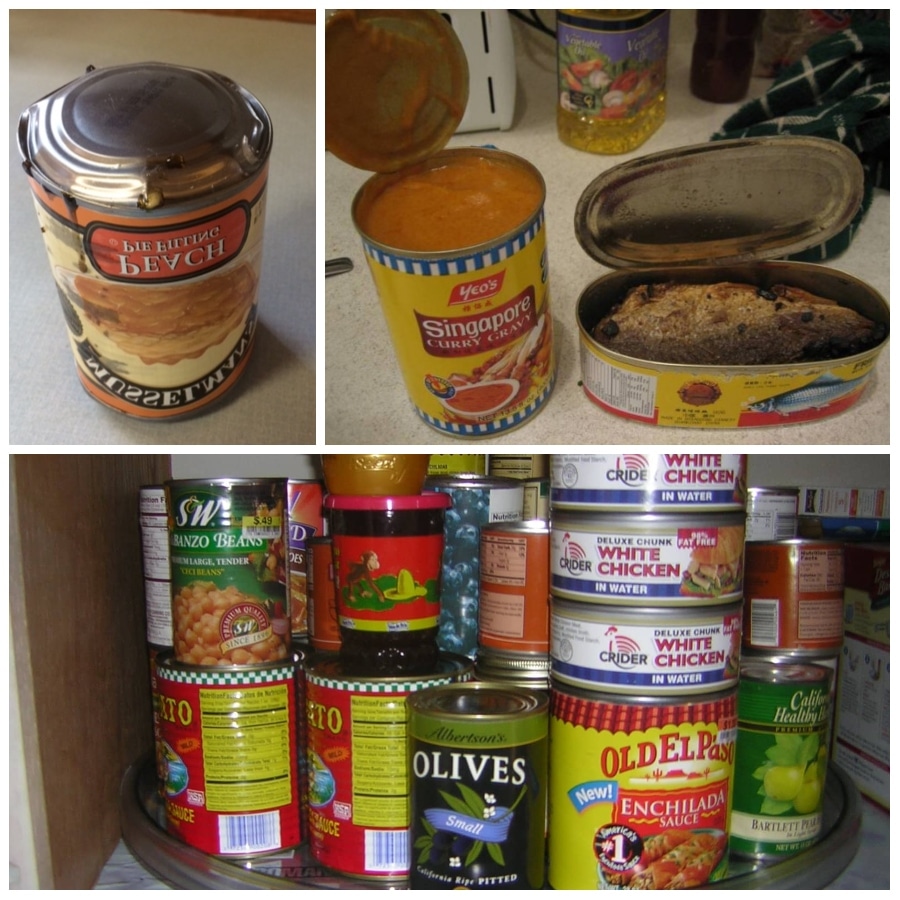
Throw out all cans that start getting rusty or that have begun to bulge; the chemistry of the contents has been altered, and they are no longer safe for consumption. Also, acidic foods like tomatoes have a much shorter lifespan than, say, canned corn.
Coming up next…
Cleaning Products
It may surprise you to know that cleaning products degrade over time, which makes them less effective. With time, the plastic bottle containing the bleach will start affecting its formula, rendering it useless.
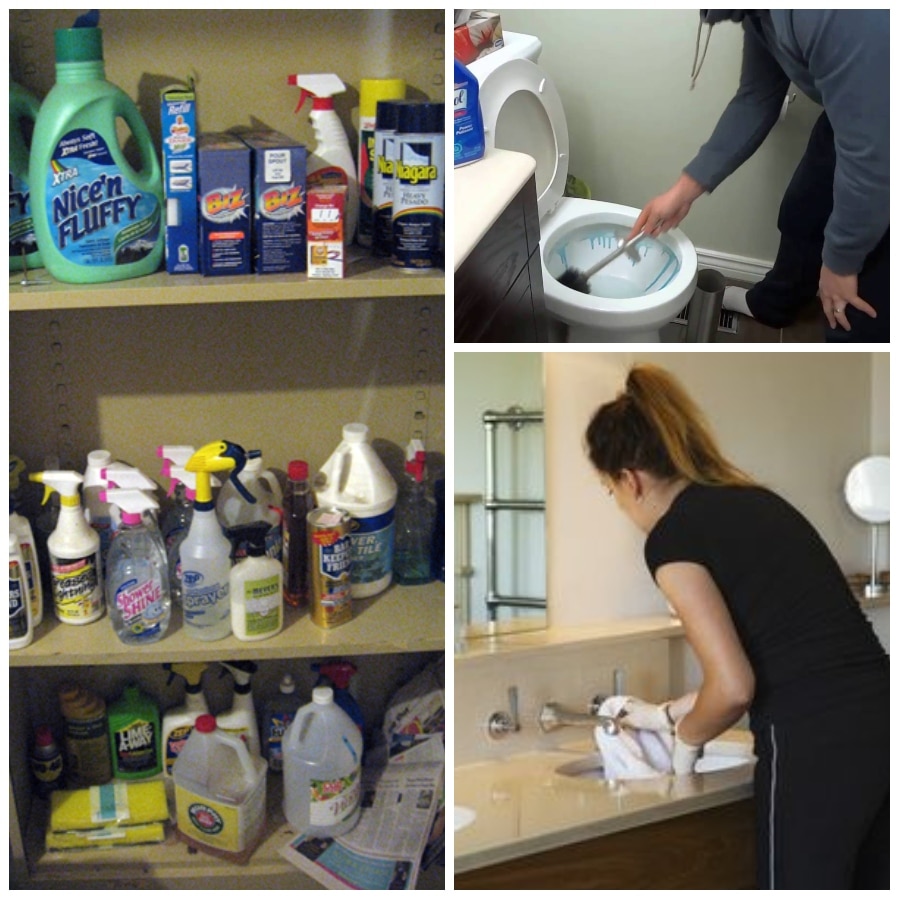
This also applies to laundry and dishwashing detergents or furniture and window cleaners. These products kill germs and bacteria and are fundamental in sanitizing our house, therefore we need to bear in mind their expiration date.
Cooking Oil
Just because cooking oil doesn’t change color or smell over time, that does not mean it’s still good to consume. In most cases, vegetable oil is ok for human consumption for up to six months after it’s been opened.

If you dare ingest it after that period of time is over, you are putting your health at risk. It can cause gastrointestinal distress, such as nausea and abdominal pain, and facilitate growth environments for bacteria.
Toiletries
Toiletries such as shampoo, conditioner, or deodorant have a finite lifespan that you should pay attention to. Once expired, they can simply not be as effective as they used to be, but this is a best-case scenario.
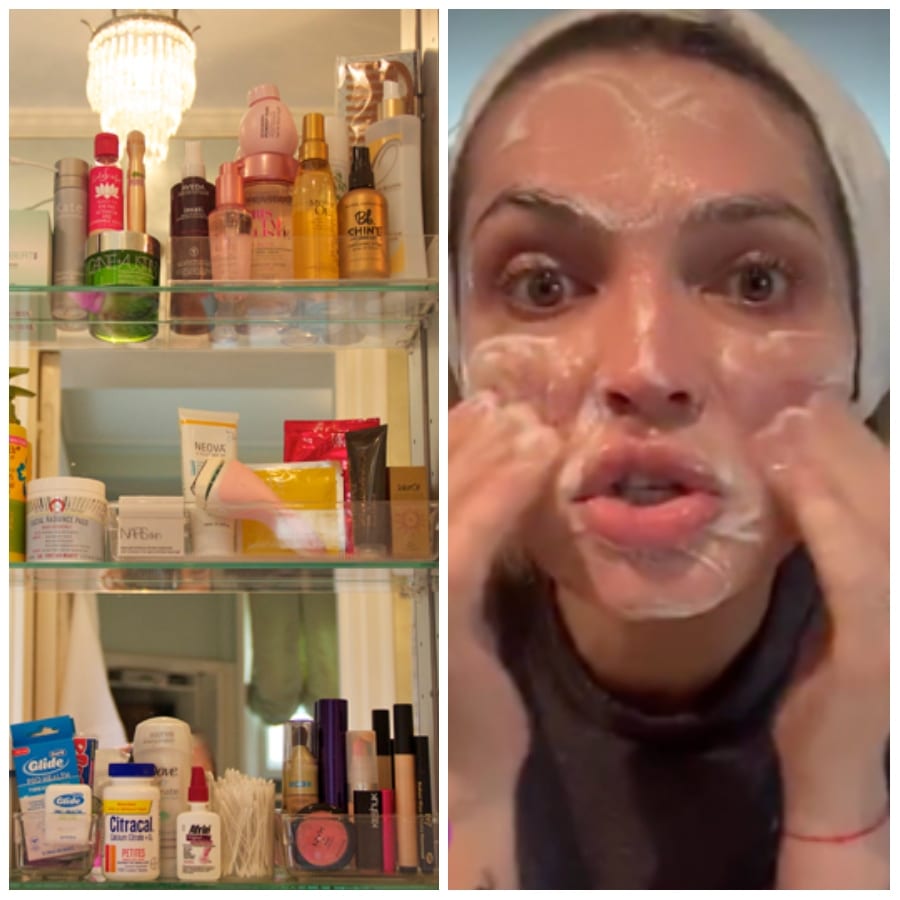
Expired face products can irritate your skin and cause discomfort. Be careful of them, as they can cause skin rashes or even infections. Don’t underestimate their expiration dates.
Disposable Razors
Disposable razors should be discarded after a maximum of 10 shaves. With each shave, the razor loses sharpness, becoming less effective. They also are in contact with soap and water, which can lead to a rusty blade.
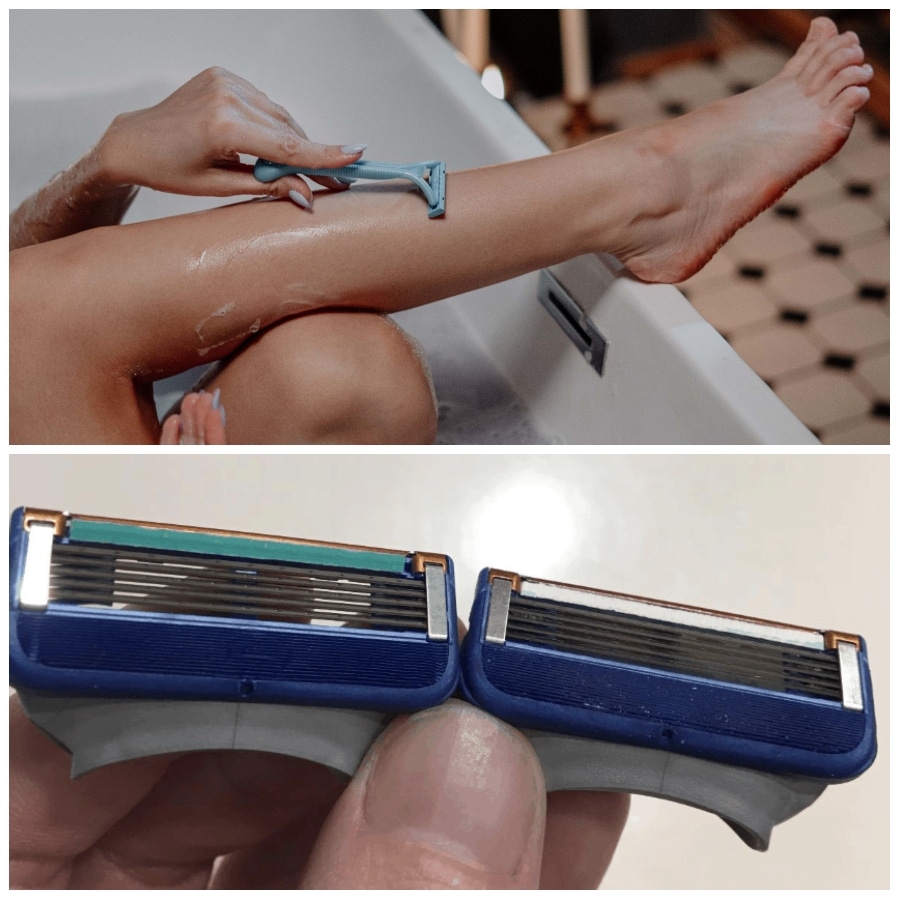
This can cause what we typically call a “razor burn.” You repeatedly go over the same skin patch since it’s not shaving properly anymore. It can cause skin irritation, nasty rashes, ingrown hairs, and even accidental cuts.
Remember when we mentioned Toiletries? Well, this ties directly into it.
Cosmetics
It’s well-researched that expired cosmetics can be harmful to your skin, but makeup brushes and other tools can also become a seedbed for bacteria. It’s recommended that you regularly clean your brushes and sponges or even replace them if necessary.
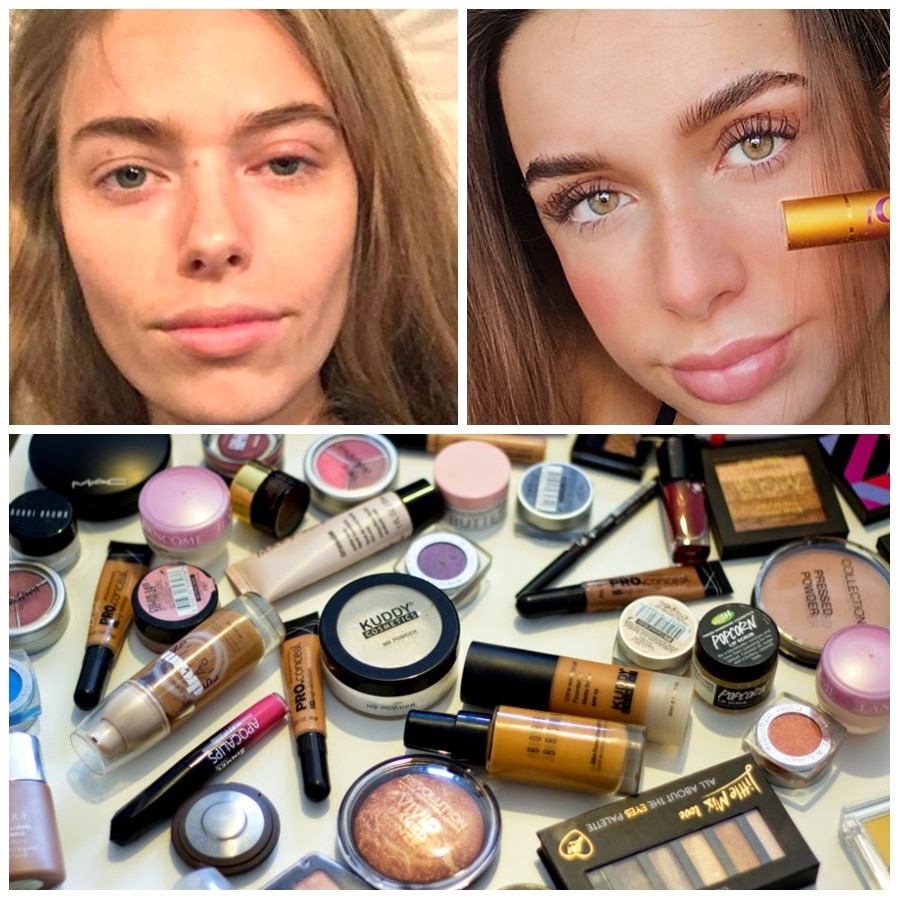
You will avoid outbreaks, rashes, and irritation by keeping your tools sanitized. Be extra careful with mascara because the wand can become a breeding ground for bacteria that can cause eye irritation, among other things.
Bike Helmet
In case you didn’t know, helmets used to protect the head from traumatism in an accident do expire! Over the passing of time, the integrity of the cushion and protective elements inside the helmet start getting altered, making it less effective.
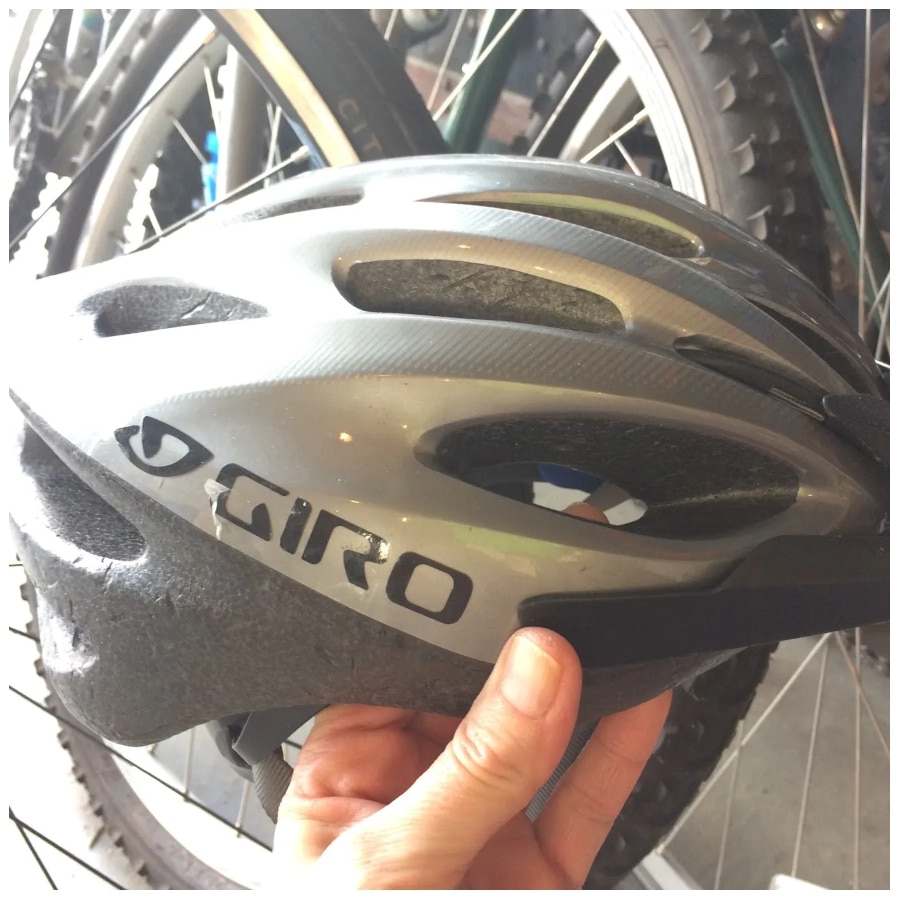
If your helmet was involved in an accident or if it’s been damaged, go ahead and replace it. If your helmet doesn’t fit properly or if it’s over five years old, change it as well.
Sponges
It’s very important that you regularly renew kitchen and shower sponges to avoid them becoming a cradle for bacteria. Sponges are more prone to developing bacteria because they’re being used in warm and wet environments.
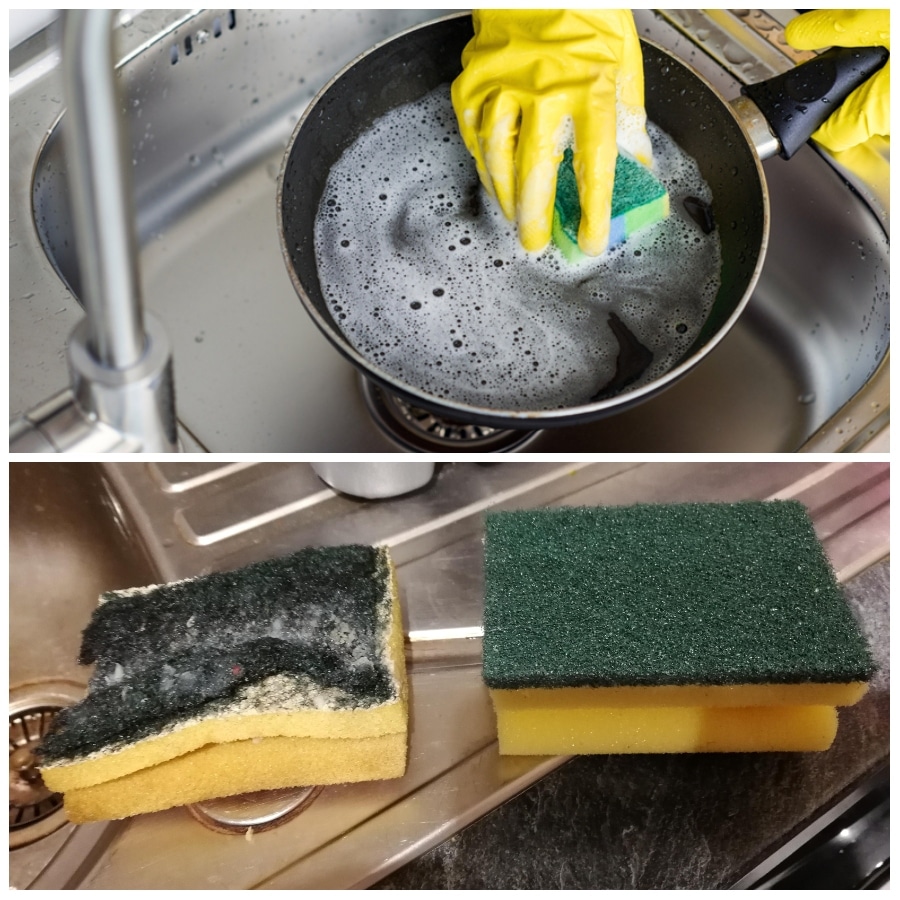
An old sponge used in the kitchen can risk your health; you could contract salmonella or E.coli. Depending on how much you use them, change the kitchen sponge once a month. The shower sponge can last a bit longer.
Pillows
When was the last time you replaced your bed pillows? Even though they might be in very good condition, pillows should be replaced every 3 years. With the passing of time, pillows can start housing dust mites that cause eye infections and allergies.
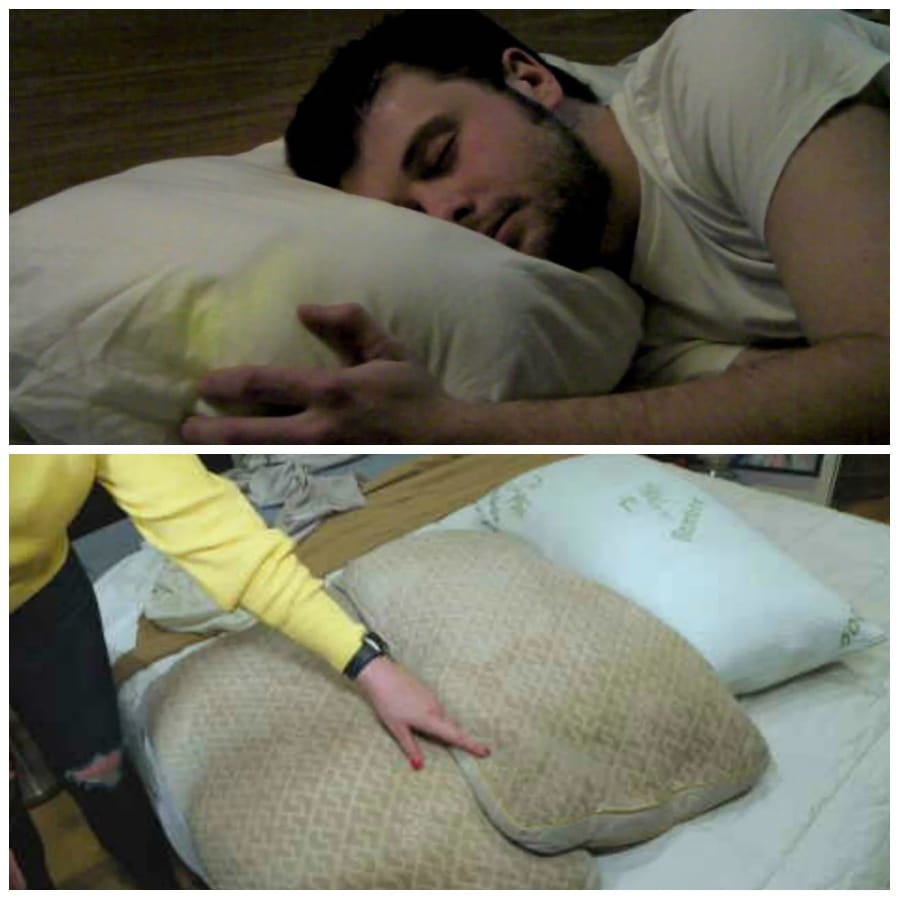
Also, you will notice that the shape has started to warp, and it can cause you severe neck pain and many restless nights. Fortunately, pillows are relatively cheap and easily accessible.
Toothbrushes
Although made of synthetic fibers, toothbrushes also expire after a while, and it’s very important to throw them away when they do. They can become a breeding ground for bacteria, leading to mouth infections of various kinds.
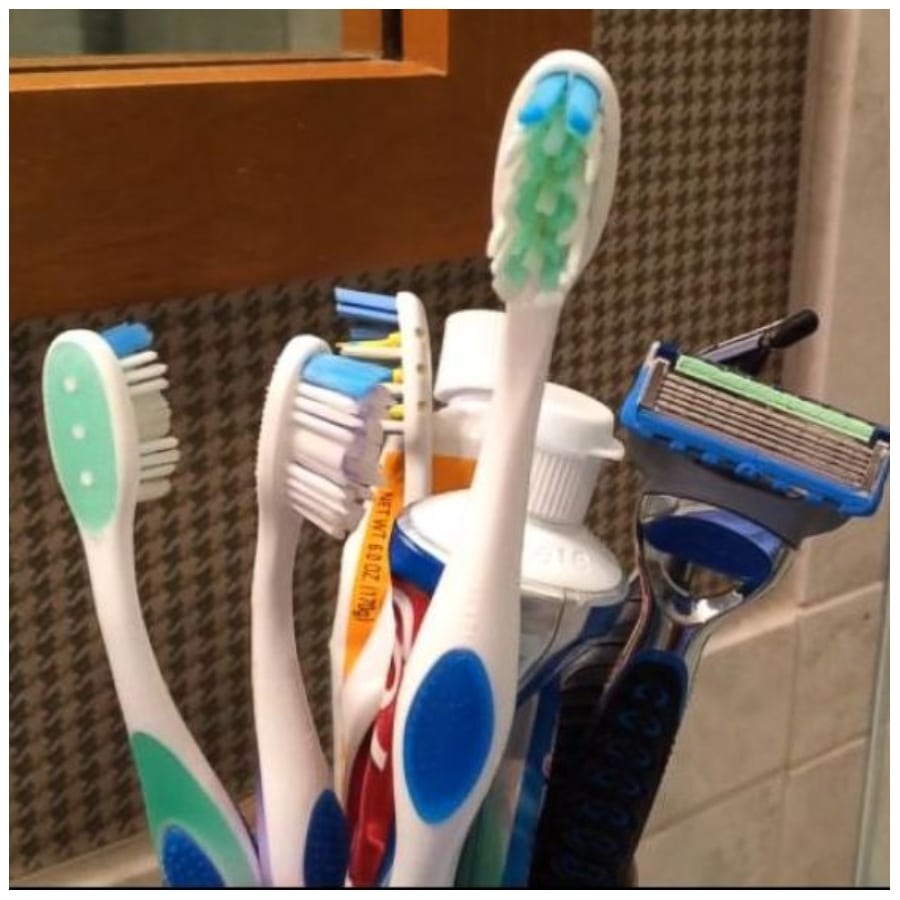
Replace your toothbrush every three months as indicated on its package. But also, it’s important you replace it after recovering from an illness, such as a cold, because germs and bacteria can linger, and you risk getting sick again.
Shower Curtains
Shower curtains, while seemingly simple, have a finite lifespan. They are constantly exposed to moisture and humidity, making them prime targets for mold and mildew growth. Although regular cleaning can extend their life, the material can degrade, leading to tears or an unpleasant odor. Plastic liners especially can harden and crack over time.
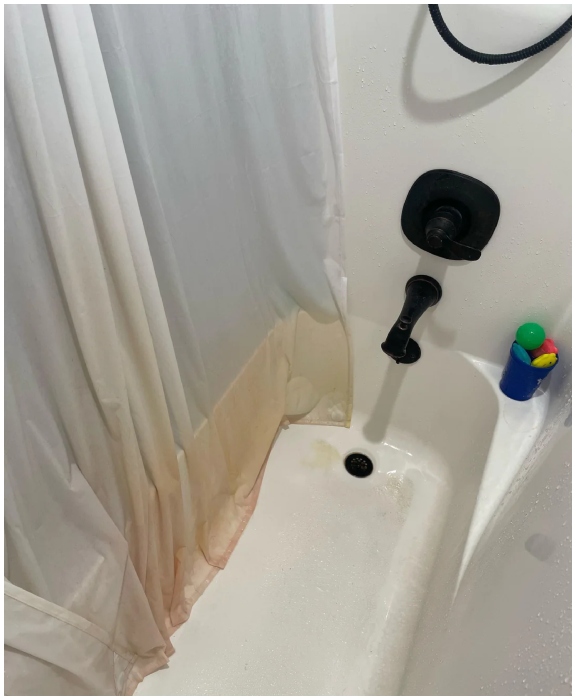
Additionally, with frequent exposure to various body products and water, discoloration can occur. It’s advisable to replace your shower curtain once it starts showing signs of wear or becomes difficult to clean. Some even opt for periodic replacements to ensure a fresh, mold-free environment in their bathrooms.
If you thought Toothbrushes were shocking, wait until you read about Hair Straighteners
Hair Straighteners
Like many electronic beauty tools, hair straighteners don’t last forever. With frequent use, their heating elements can degrade, leading to uneven temperatures and potential hair damage. The protective ceramic or tourmaline coating can wear off over time, resulting in a less smooth glide and increased friction, which can pull or break hair.
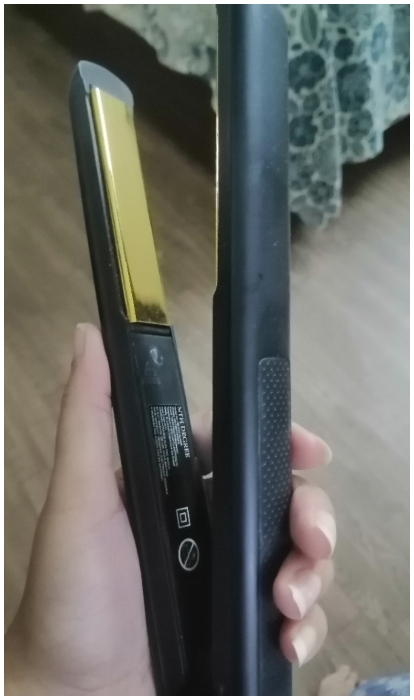
Additionally, old or damaged straighteners might pose a burn risk or an electrical hazard. If you notice your straightener isn’t heating as effectively or the plates look worn out, it’s wise to replace it. A quality straightener, if used and stored properly, should last several years.
Bras
Integral to many wardrobes, bras offer both support and contouring. However, like most apparel, they aren’t forever pieces. With time, the fabric’s elasticity weakens, resulting in a less snug fit. Components like hooks can lose their shape, underwires might poke out, and straps can stretch out.
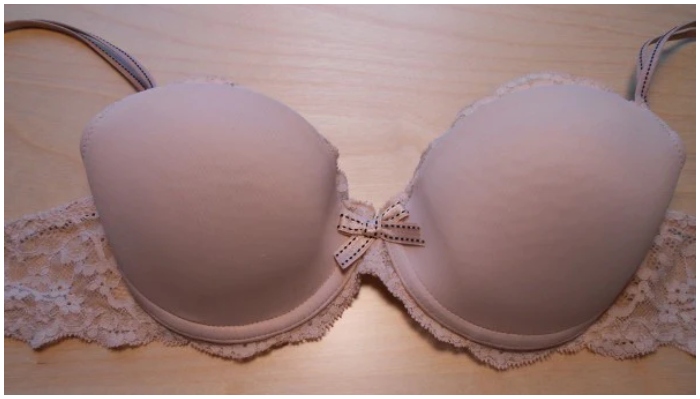
Moreover, due to the regular friction from wear and the effects of washing, the material can wear thin or develop imperfections. While a bra’s longevity can vary based on usage and care, for maintaining the best comfort and support, it’s advisable to consider replacing bras every 1-2 years.
Sandals
Believe it or not, even your sturdy sandals have an expiration date. Over time, the cushioning can wear down, and the soles may lose their grip, leading to a less comfortable and potentially unsafe footing. If you notice the tread on your sandals has smoothed out, it’s time to start shopping.

Similarly, if the straps are frayed or the buckles are no longer secure, your sandals are telling you they’ve trekked their last mile. To ensure your safety and comfort, experts recommend assessing your sandals each season. A fresh pair not only supports your feet better but also maintains the health of your posture and joints. So give your faithful footwear a check-up and ensure you’re stepping out in safety and style.
We’re just getting started—these next entries are even more unbelievable
Coffee
Coffee, the beloved beverage of many, does indeed have a shelf life. While it doesn’t spoil like perishable food, coffee’s optimal flavor can diminish over time. Whole beans maintain their freshness for about a month after roasting, offering the pinnacle of flavor when used within this window.
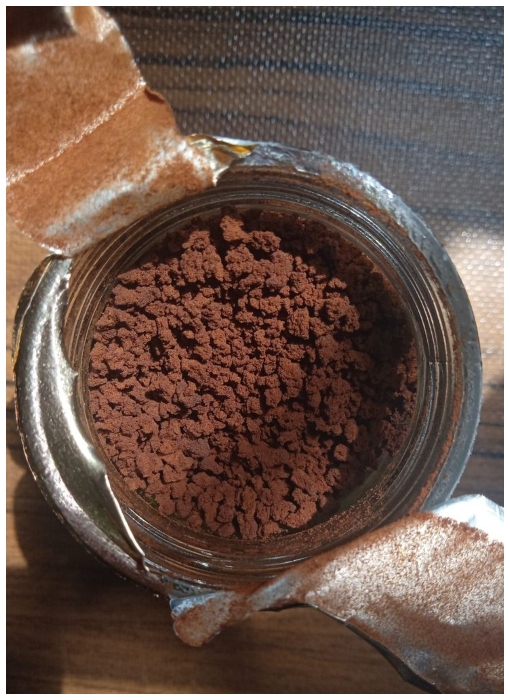
Once ground, the coffee begins to oxidize faster, and its aromatic oils start to dissipate; thus, it’s best enjoyed within a week or two. To extend your coffee’s lifespan, store it in an airtight container away from light, heat, and moisture. Remember, the fresher the coffee, the more exquisite your cup. So, for the sake of taste, keep an eye on your coffee’s age and savor each brew at its best.
Aluminum Food Containers
Aluminum food containers are handy for leftovers, but they’re not meant for repeated use. Reusing disposable aluminum trays can cause the material to degrade, leading to dents, holes, or contamination from leftover food particles. Over time, chemical leaching can also occur, especially when acidic or oily foods are stored or reheated in them.
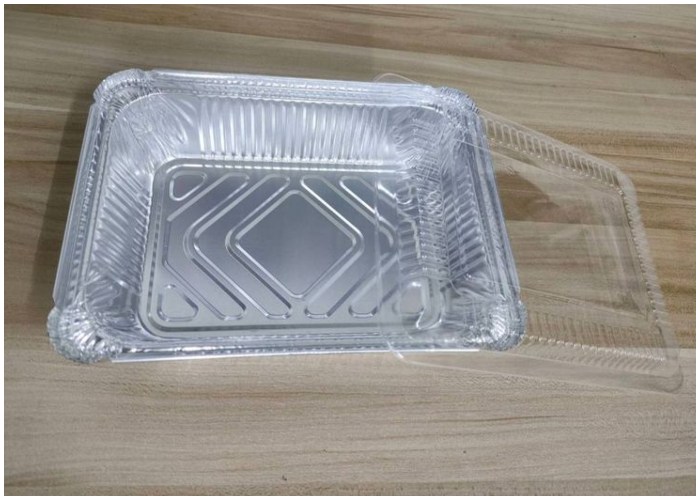
Electric Grills
Electric grills may make cooking convenient, but they pose a hidden risk if not maintained or replaced regularly. Over time, food debris and grease build-up, which can lead to burnt residue sticking to the plates. Not only does this affect food flavor, but it also increases the risk of harmful bacteria and even potential fire hazards.
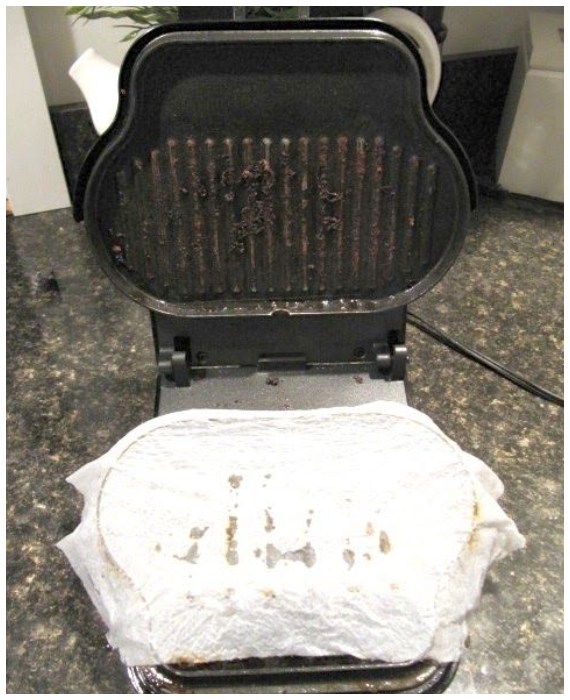
To ensure safety, clean the grill thoroughly after every use and replace it if the non-stick coating is damaged or peeling. A well-maintained grill guarantees healthier meals and reduces safety concerns in your kitchen.
Curious about other Products That Pose Risks Past Their Expiration Date? Check out these
Bar Soap
Bar soap has a longer shelf life, but it’s not immune to expiration. Over time, bar soap can dry out, crack, and lose its effectiveness. Expired soap may also harbor bacteria if it’s been used frequently and stored improperly in a damp environment. Using it can cause skin irritation instead of providing the gentle cleansing you expect.
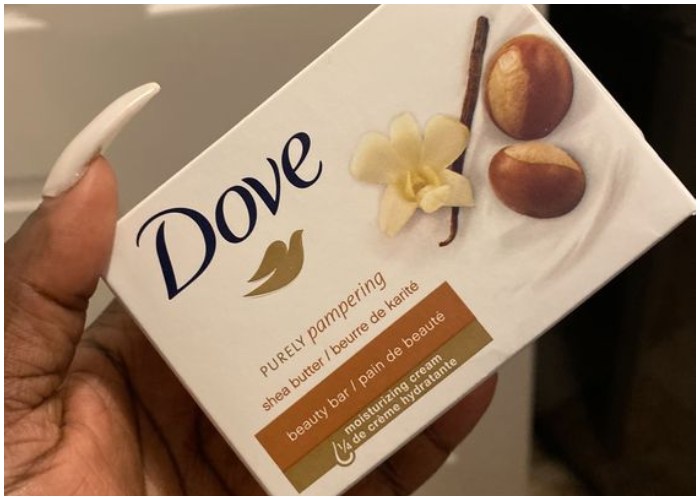
To stay safe, replace bar soaps every 12-18 months and store them in a dry soap dish. If your soap develops an odd smell, discoloration, or mold, it’s time to toss it.
Curtains
Curtains are often overlooked when it comes to expiration, but over time, they collect dust, mold, and allergens that pose a health risk. Particularly in damp or humid environments, curtains can harbor mildew, which can aggravate allergies and respiratory issues.
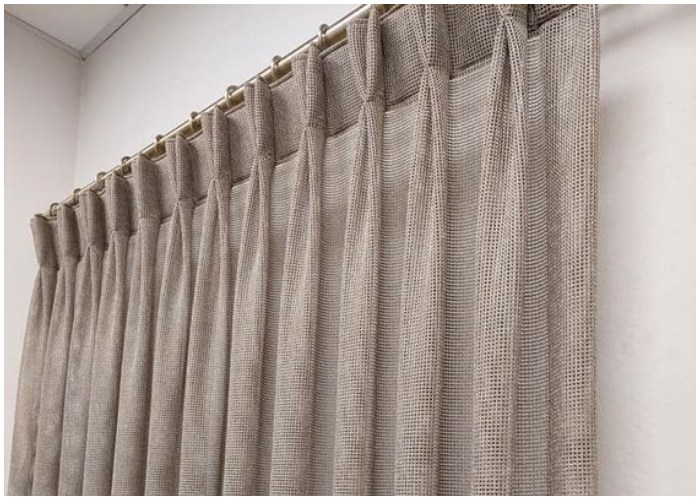
To keep your home healthy, wash curtains every 3-6 months and check for discoloration, musty odors, or fabric wear. Replace curtains every 3-5 years, especially if they no longer hang evenly or show signs of deterioration. Clean, fresh curtains can significantly improve air quality and appearance in your home.
Glass Cleaners
Glass cleaners have ingredients that lose their effectiveness over time. Using an expired glass cleaner can lead to unsatisfactory cleaning results, such as streaks or a cloudy residue that’s hard to remove. This residue can etch the glass, a process where acids and minerals from the cleaner corrode the surface, creating a rough layer where more dirt and minerals can accumulate.
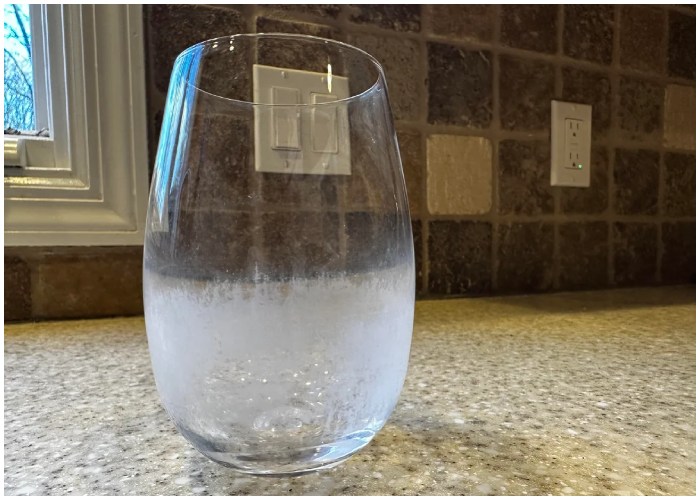
Once the glass is etched, it becomes extremely difficult to restore its original clarity. The repair involves meticulous polishing to remove the damaged layer—a laborious and often costly process usually reserved for valuable antiques. To prevent such damage, always check the expiration date on glass cleaning products and ensure they’re stored properly to maintain their efficacy. Using expired cleaners not only leads to poor results but can also permanently damage the glass surfaces in your home.
Coming up next…
Spices
Spices and herbs are used to season food and can be found in almost all kitchens. These trusty dried foods tend to last longer than any other foods, but that doesn’t mean they don’t expire as well.
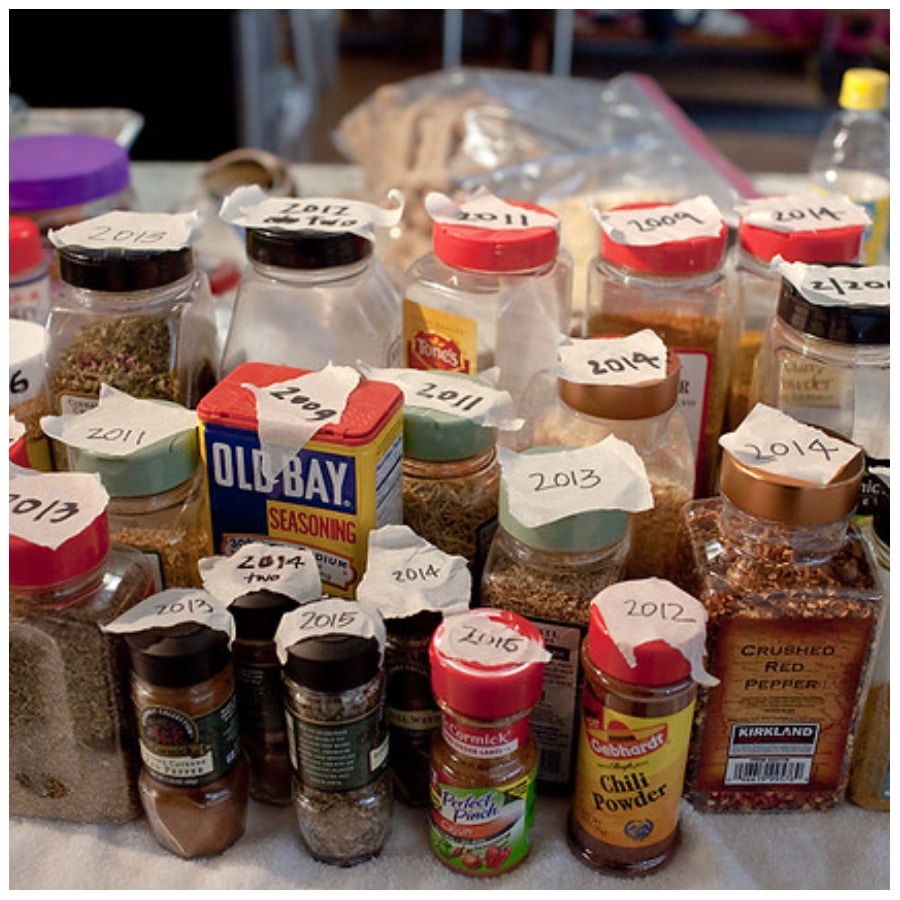
Consuming outdated spices isn’t necessarily harmful, but they won’t taste as strong and tasty as before. Herbs and spices can last between 1 and 3 years, so clean up your spice rack of old products every now and then.
Olive Oil
Olive oil, a kitchen staple, doesn’t last indefinitely. Its quality deteriorates over time due to exposure to air, light, and heat, leading to a rancid taste and reduced health benefits. Ideally, olive oil should be used within 18 to 24 months from bottling and within six months after opening.
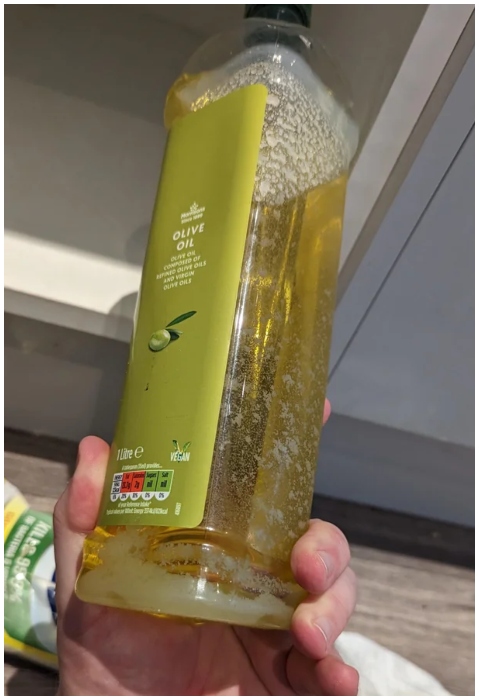
Signs of spoilage include a bitter taste or an off smell, indicating it’s time to discard the oil. To maintain its quality, store olive oil in a cool, dark place in a dark-colored bottle. Monitoring its freshness ensures you enjoy its full flavor and health advantages, enhancing your culinary creations.
Frying Pans
You might think that buying frying pans is a once-in-a-lifetime investment, and then you are good to use them for the rest of your life. Did you know that pans have a limited time of use? Experts say that pans should be replaced every 3-5 years.

Non-stick pans have a Teflon coating that will start to peel off eventually, and while it’s not harmful in small amounts, it isn’t necessarily healthy either.
Remember when we mentioned Electric Grills? Well, this ties directly into it.
Microwaves
Microwaves are a staple in modern kitchens, prized for their convenience and speed. However, like any appliance, they have a lifespan after which their efficiency and safety can be compromised. The first sign of an aging microwave is often a decline in cooking performance. This can manifest as uneven heating, longer cooking times, or a noticeable reduction in power. These symptoms indicate that the microwave is working harder to achieve the same results, leading to increased energy consumption and potential overheating.
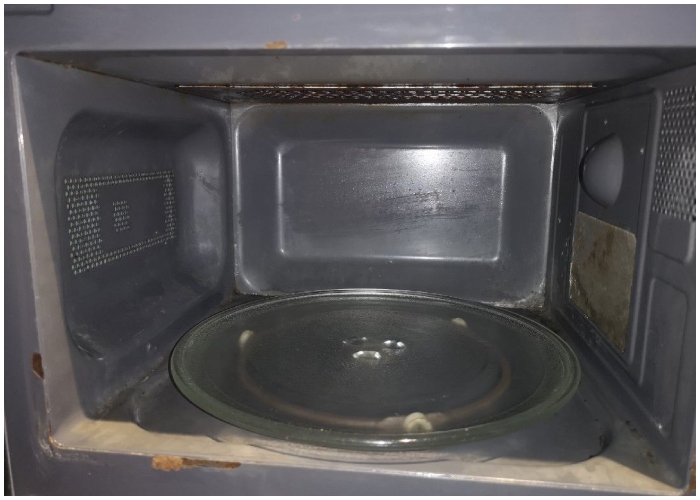
Dishware
Old dishware often tells a story of countless meals and memories, but it can also reach a point where it’s best retired. Prolonged exposure to moisture, especially when left to soak in dirty water, can cause significant damage over time. This continuous soaking can lead to the degradation of the material, making it more susceptible to harboring bacteria and mold.
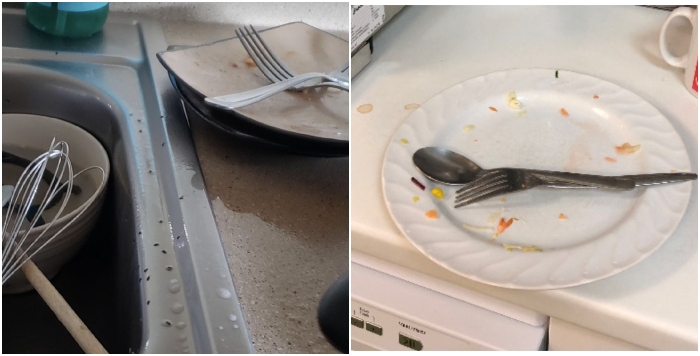
These health risks are especially concerning in porous materials like ceramic or stoneware. In addition, the structural integrity of the dishware can be compromised, increasing the likelihood of breakage. To ensure hygiene and safety, it’s advisable to replace old dishware that has frequently been subjected to such conditions.
Dishwasher
Although they are appliances, they don’t last forever. Our dishwasher can still work wonderfully after a decade of use, but you will notice it becoming rickety and finicky. Dishes can appear clean when they’re actually not, giving way for bacteria to gather.
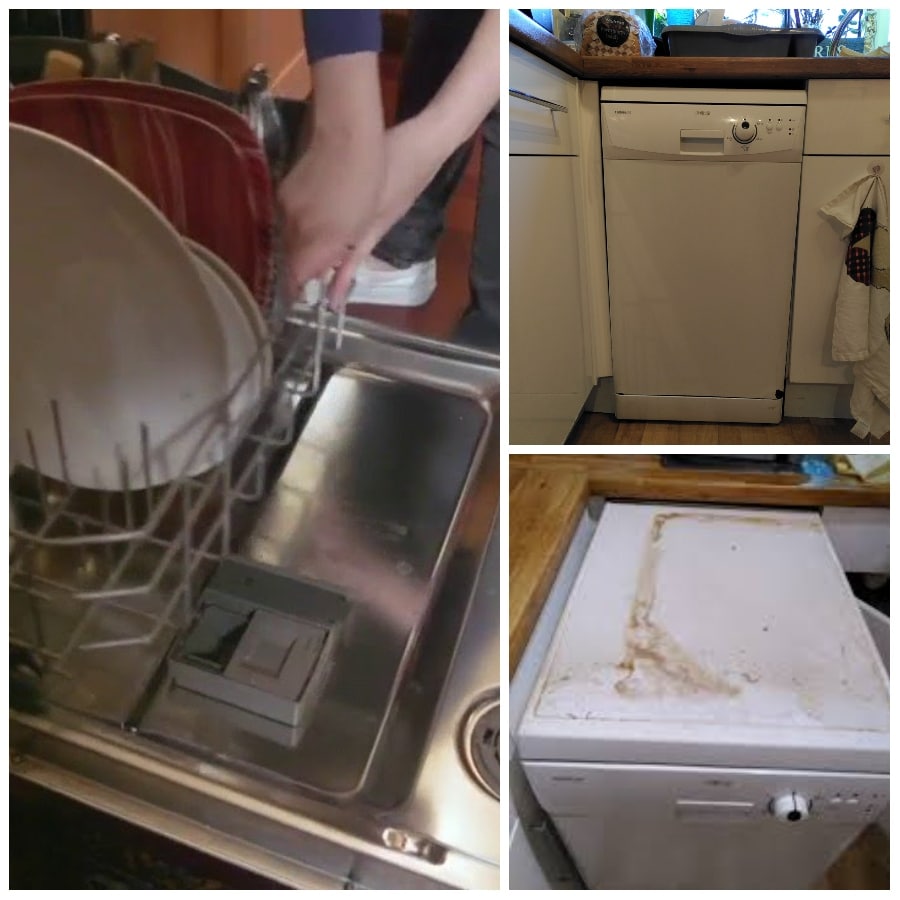
Pay attention to the glasses and see if they come out crystal-clear or if limescale has become impossible to remove with regular descaling products. Those are signs that you need to replace your dishwasher.
Slippers
There is nothing better than owning a comfy pair of slippers to walk around the house in, but unfortunately, they need to be let go after a while. They gather not only dirt at the soles but also sweat and dead skin that comes from the feet.
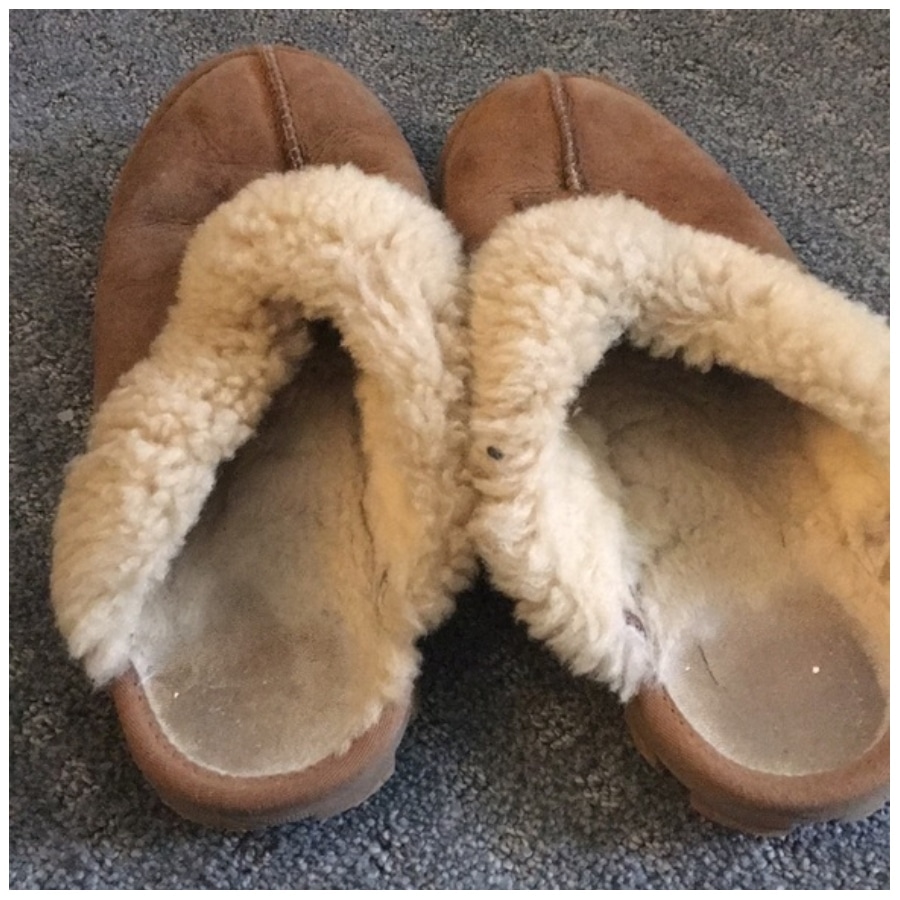
They aren’t usually washed in the washing machine because they would get ripped apart. It’s best practice to replace your slippers every 6 months to maintain good foot health.
Flour
Flour is one of those essential foods that most people have a packet of somewhere in their cupboards. But if you aren’t a baker or an avid cook, you might forget about that flour you opened months ago. First-grade flour lasts for about 6 months, while other high-grade flour can last up to a year.
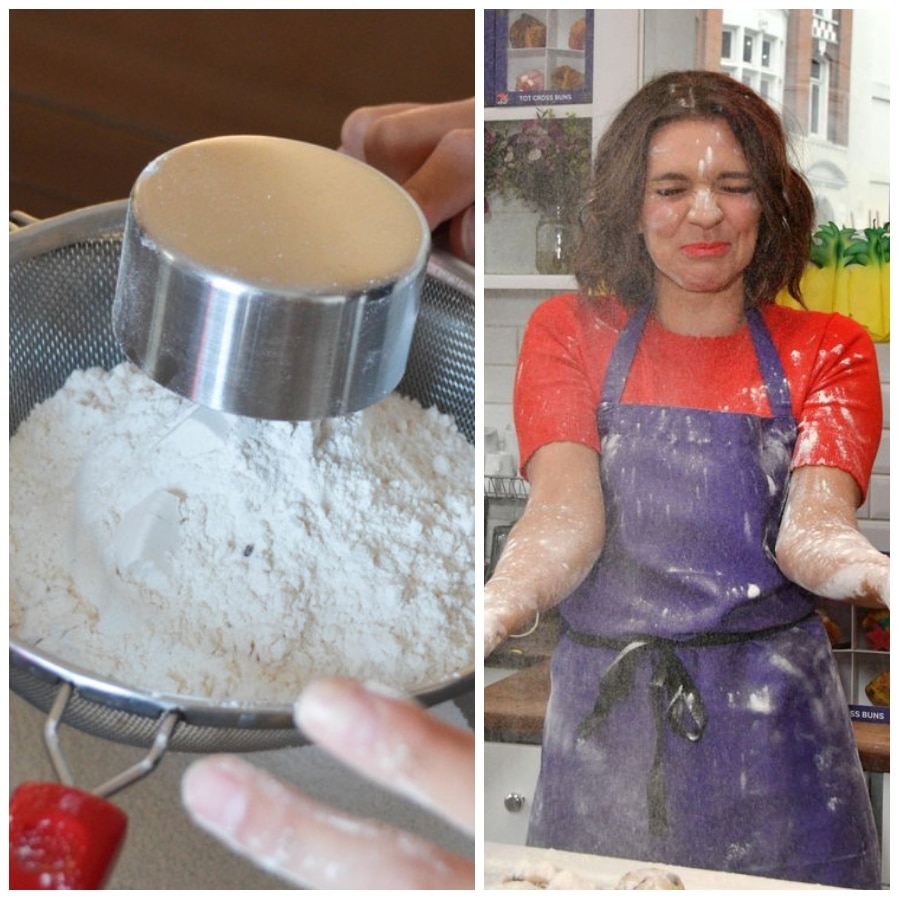
In fact, mold, spores, flour moths, and mites, among other insects, can start growing in the flour after a while.
Bug Spray
Depending on where you live, it can be impossible to survive in summertime without bug spray. We need this product to protect ourselves from mosquito bites and other insects. But bear in mind that bug spray can age and, in turn, become ineffective.
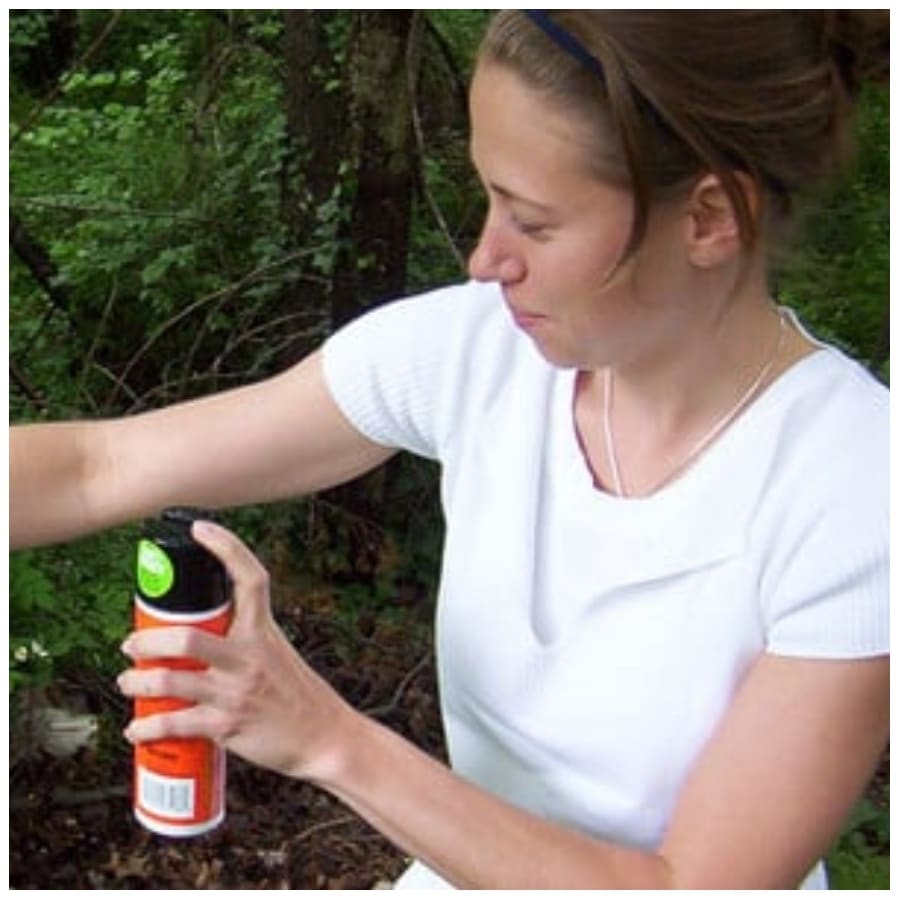
Throw out any bug spray that is over 2 years old, even if the container still has some product in it, because the chemicals change and it just stops working correctly or causes skin irritations.
Towels
Depending on how often you use your towels, they need to be replaced every 1-3 years at the least. These pieces of cloth are in the damp and warm environment of the bathroom, and they become the seedbed for bacteria growth.
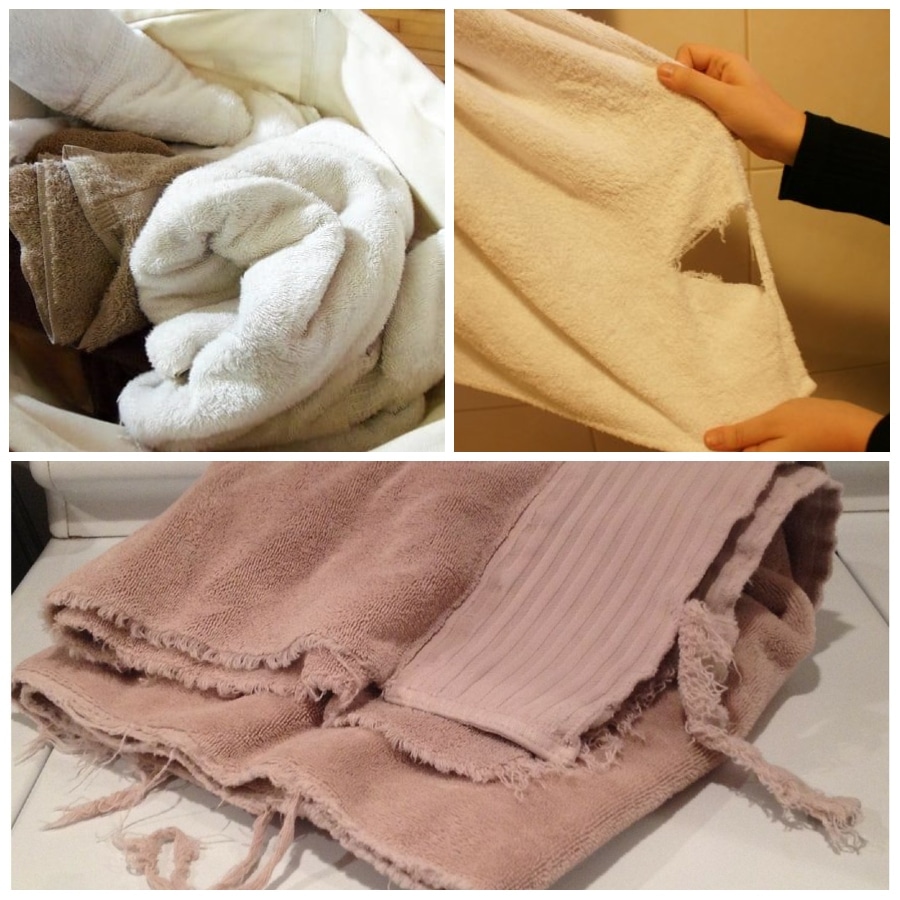
Even high-temperature washing cycles can’t completely get rid of all resilient germs. They also lose fluffiness and become scratchy with time.
Pacifiers
Pacifiers are a parent’s best tool to get their babies and toddlers to calm down and sleep, thus getting themselves a good night’s sleep as well. But although your kid might have a favorite pacifier, it should be thrown away every 2-5 weeks.
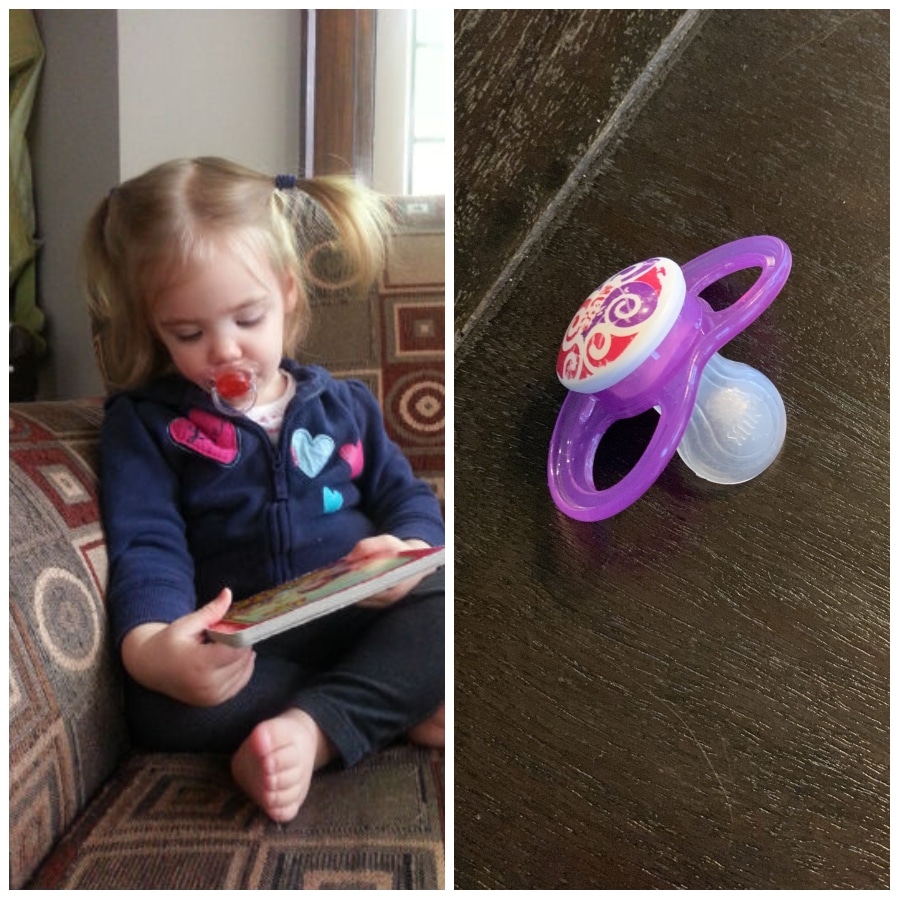
This is because, with time and use, the latex of the pacifier will crack and become the perfect sport for bacteria to grow. You don’t want to risk your baby getting sick.
Batteries
Batteries come with a “best before” date stamp, which is very important to keep in mind. After a certain amount of time, batteries start corroding, which can lead to battery acid coming out.
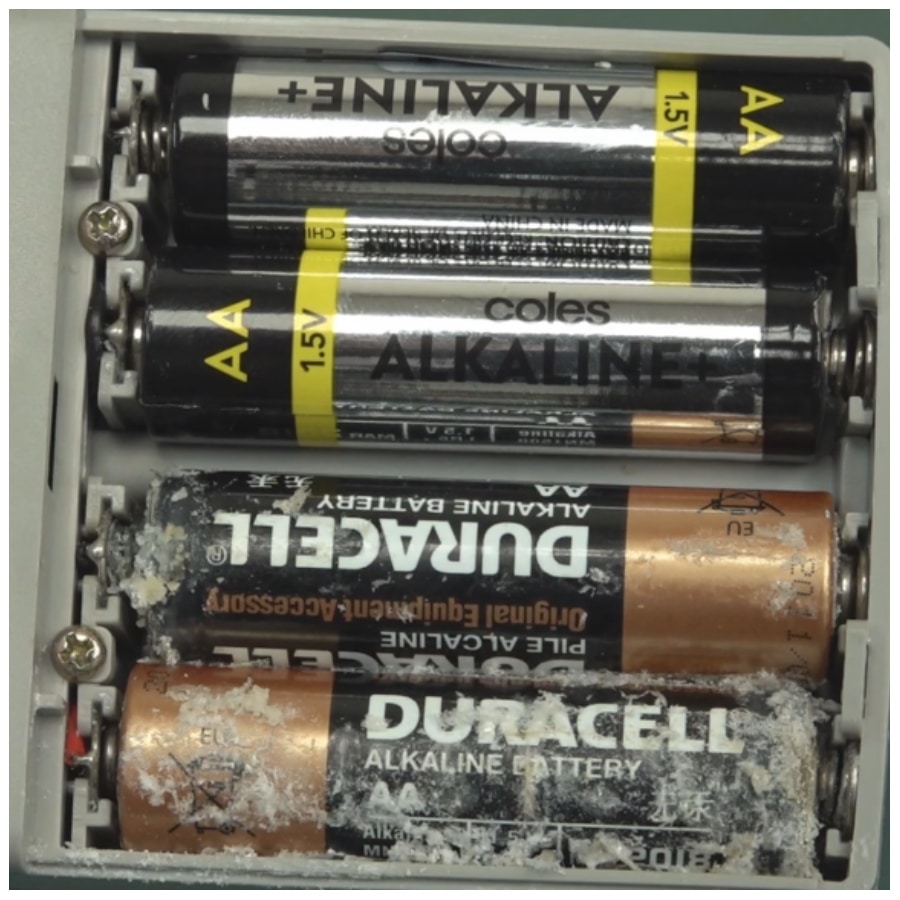
This can cause skin irritation, burns, and other harmful effects on your health. Check the batteries of your clocks and remotes every few months for corrosion.
Glassware
Cracked glassware is a common sight in many households, often dismissed as a mere cosmetic flaw. However, the risks associated with using cracked glasses go beyond aesthetics. Firstly, a crack compromises the structural integrity of the glass, making it more susceptible to breaking. This can happen unexpectedly, potentially causing cuts and injuries. Moreover, handling these glasses becomes increasingly risky over time, as even a slight pressure or change in temperature can cause them to shatter.
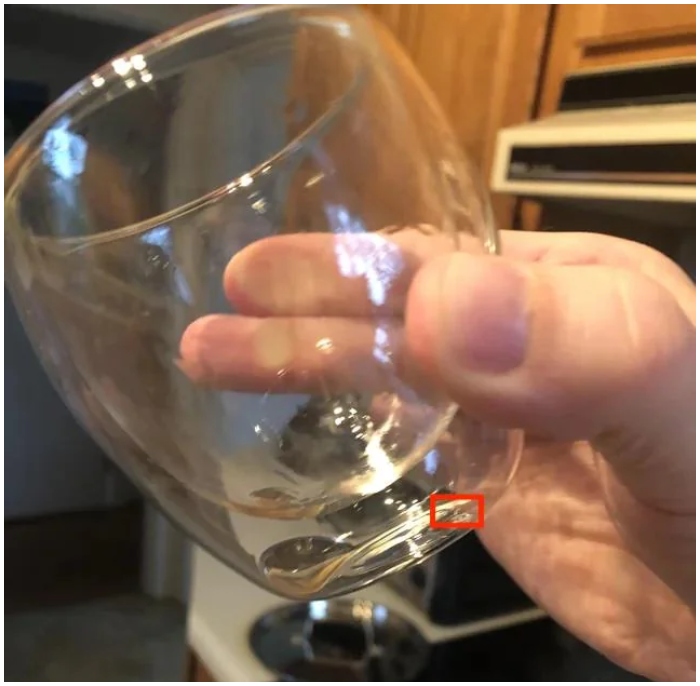
Keyboard
We use our keyboards every day therefore we should be cleaning them regularly. But even if we do sanitize them on a regular basis, keyboards should be replaced every 2-3 years.

Not only do bacteria grow in between the keys, but also they start to fade or become stuck with time. Like any other device, keyboards also begin to deteriorate.
Mattress
A good mattress can tremendously improve the quality of your sleep. Most mattress companies suggest we replace them every 8 years due to them losing their shape and firmness.
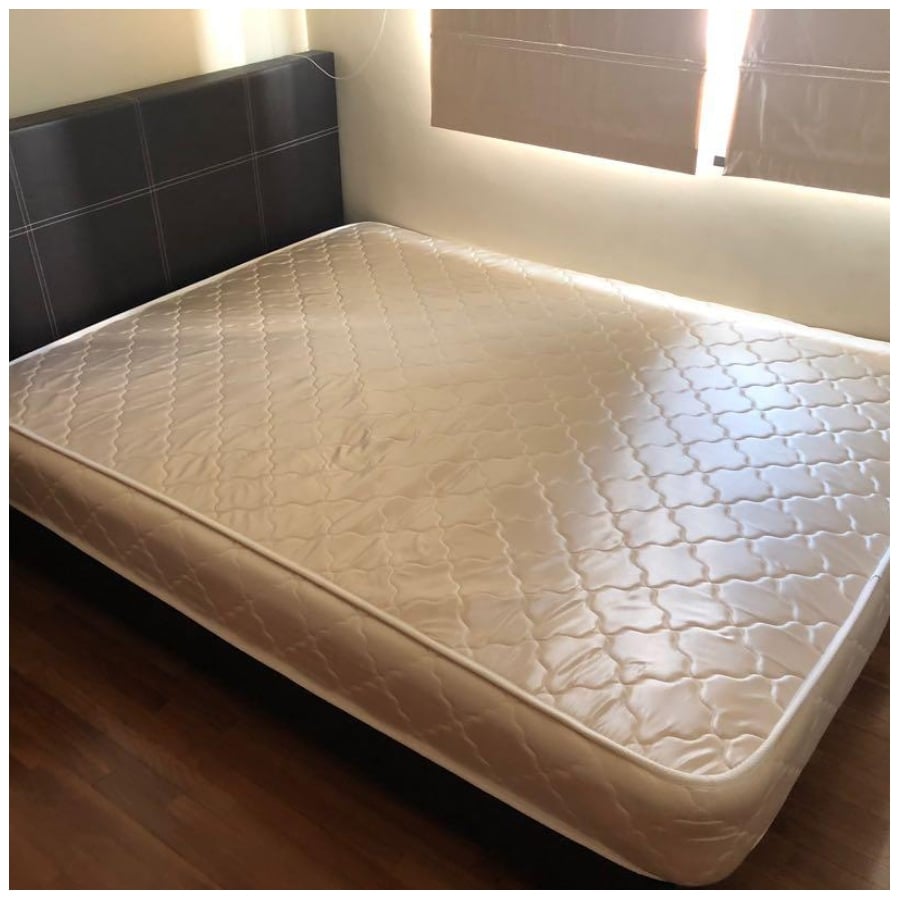
This can cause severe neck and back pain as well as impaired quality of rest. They also can become breeding grounds for bacteria since we sweat a lot when we sleep.
Carpets
If you have carpet on the floor of your home, bear in mind that it should be replaced every 10 years. Even if you clean and vacuum on a regular basis, it might not be enough to keep it free of bacteria after a few years.
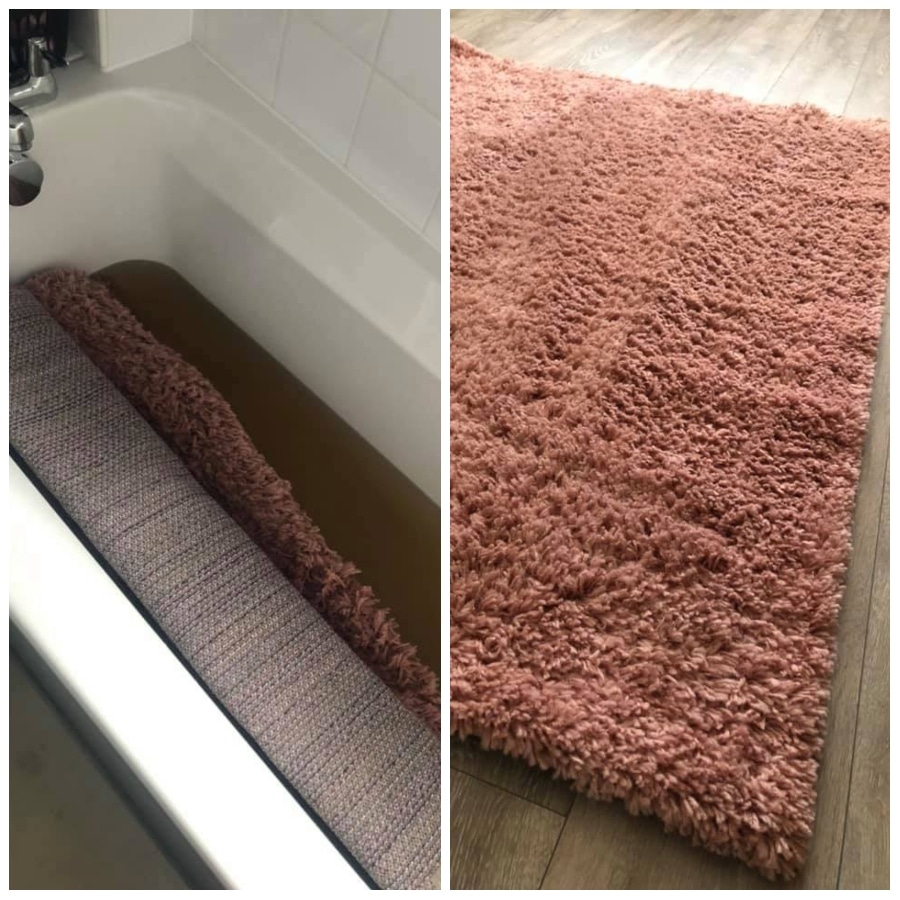
Also, you will notice that the fibers break up, and the carpet becomes thinner.
Washing Machine
Like the dishwasher, the washing machine is an appliance that can start to fail over time. It’s highly recommended that you replace your washing machine with a new one every 8 years.
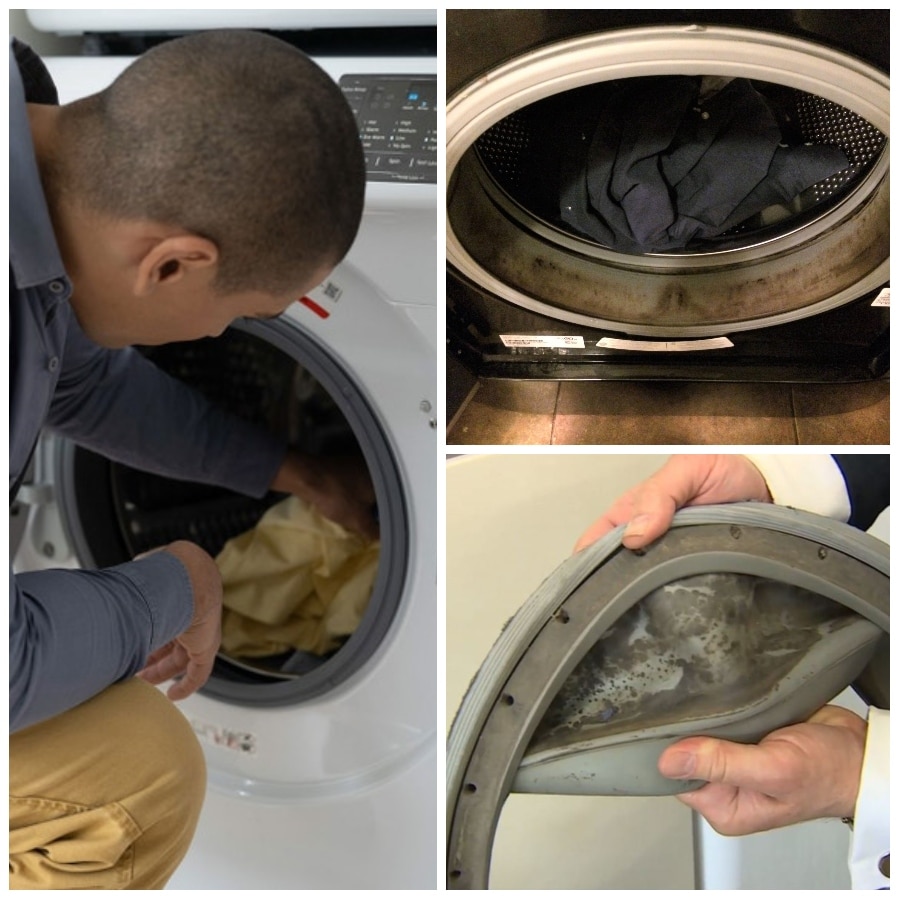
It can harvest bacteria and mold that can stain your clothes. Save up some money for when the time comes to get a new state-of-the-art machine.
Face Scrub
It’s not hard to accumulate skin care products since new ones come out all the time, and they have cute packaging that you can display in your bathroom. But let’s not forget that these products go bad at some point.
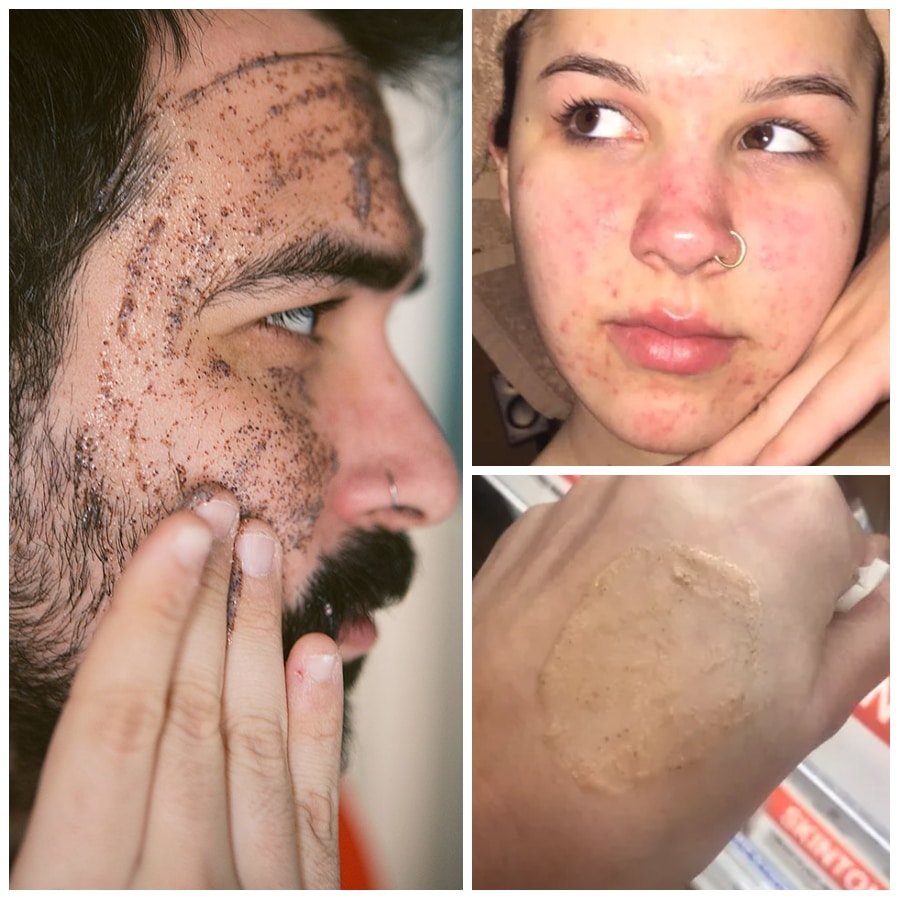
Face scrubs can only last up to a year, so make sure to use them up before buying more.
Shower Gel
If you prefer show gel over soap, you might have more than one bottle lying around your bathroom. They are relatively cheap to buy and come in various colors and scents, which tempts you to buy some every time.
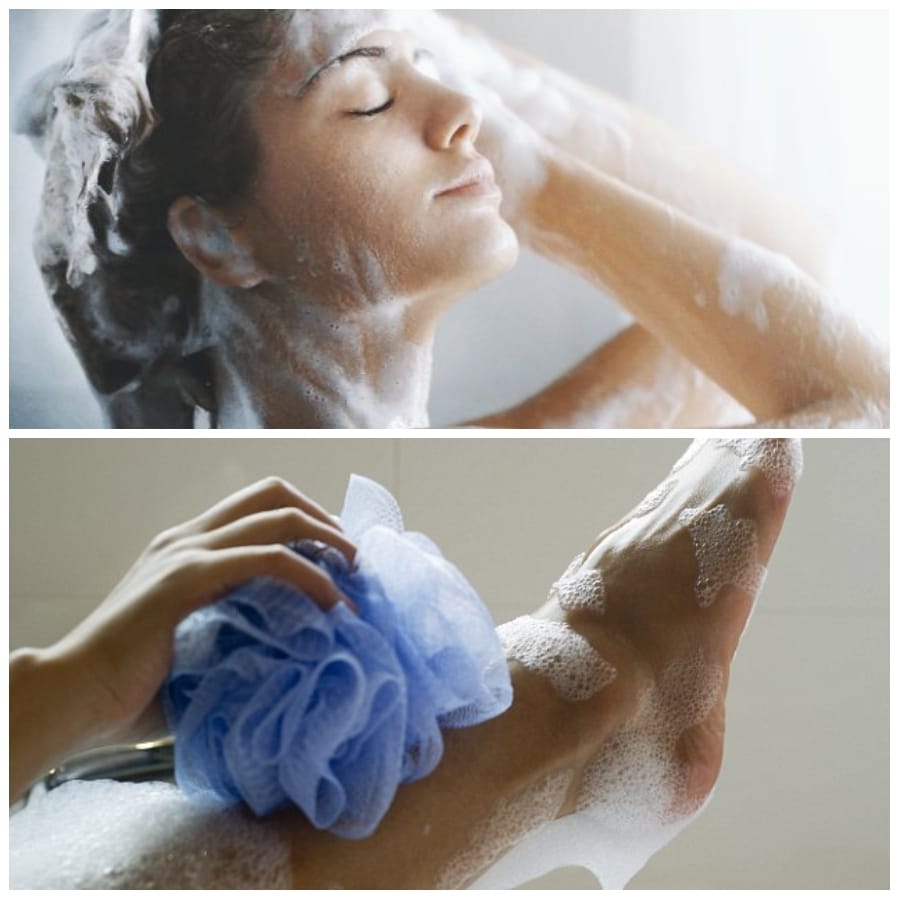
However, shower gels can only last up to 3 years, so make sure you use them up before they expire.
Protein Powder
If you are committed to a gym routine to develop muscle, then you must have included protein powder in your diet under a nutritionist’s advice.
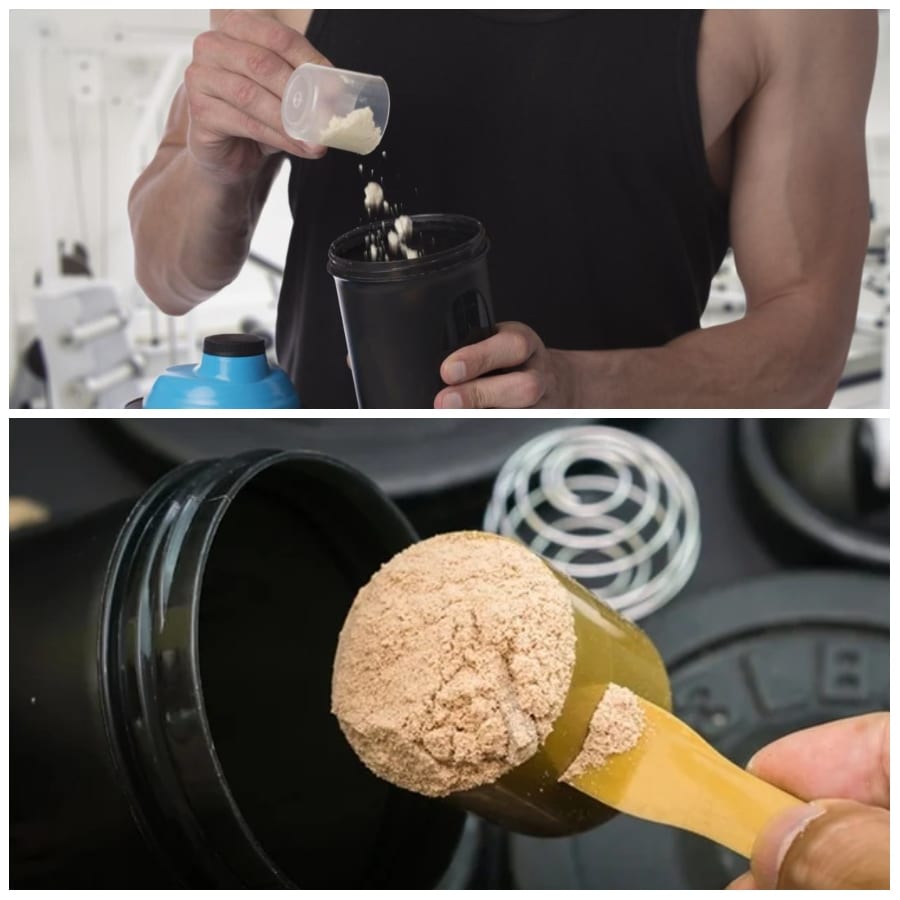
If that is the case, then you must go through the tubes of power relatively quickly, but if you consume it every once in a while, it can become stale. They last for up to 2 years.
Sugar
Most people buy new sugar once the one lying around the kitchen gets used up. But this food is not everlasting; it needs to be replaced every 2 years due to its quality starting to decline.
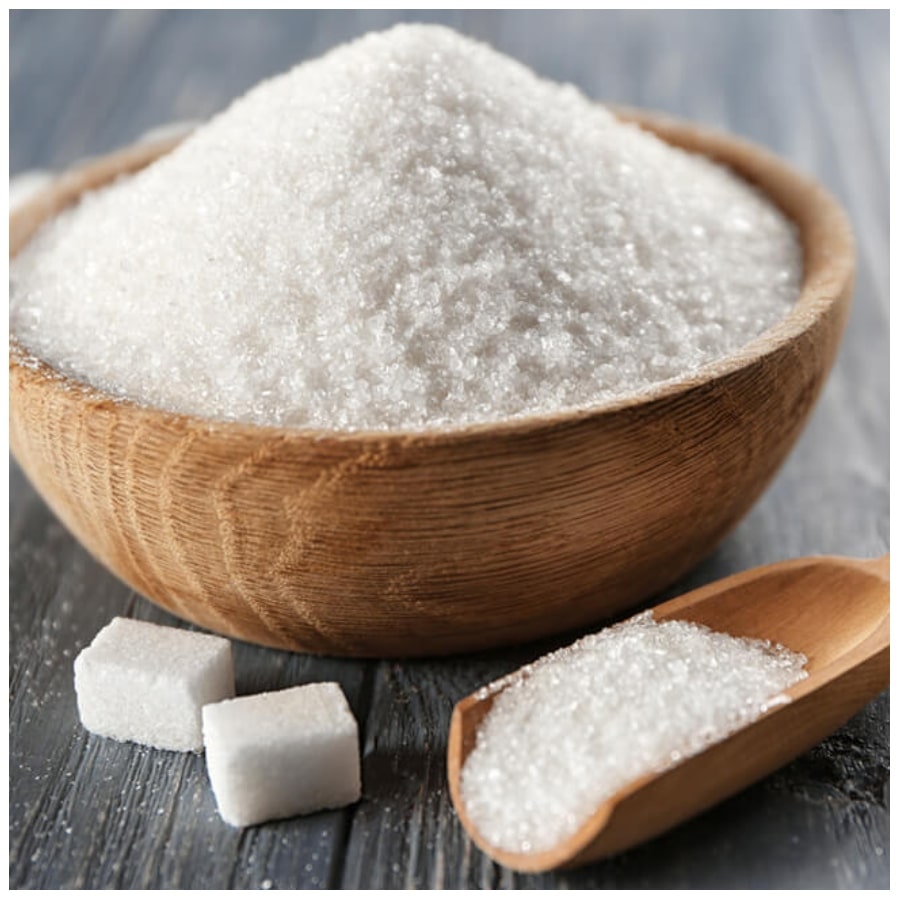
It can start to taste a bit off, and you will notice that it starts to clump and harden, making it difficult to use.
Hairbrushes
We brush our hair every single day and as often as multiple times a day. We take the hair that gets tangled and builds up every couple of days, but did you know we should actually replace hairbrushes every single year?
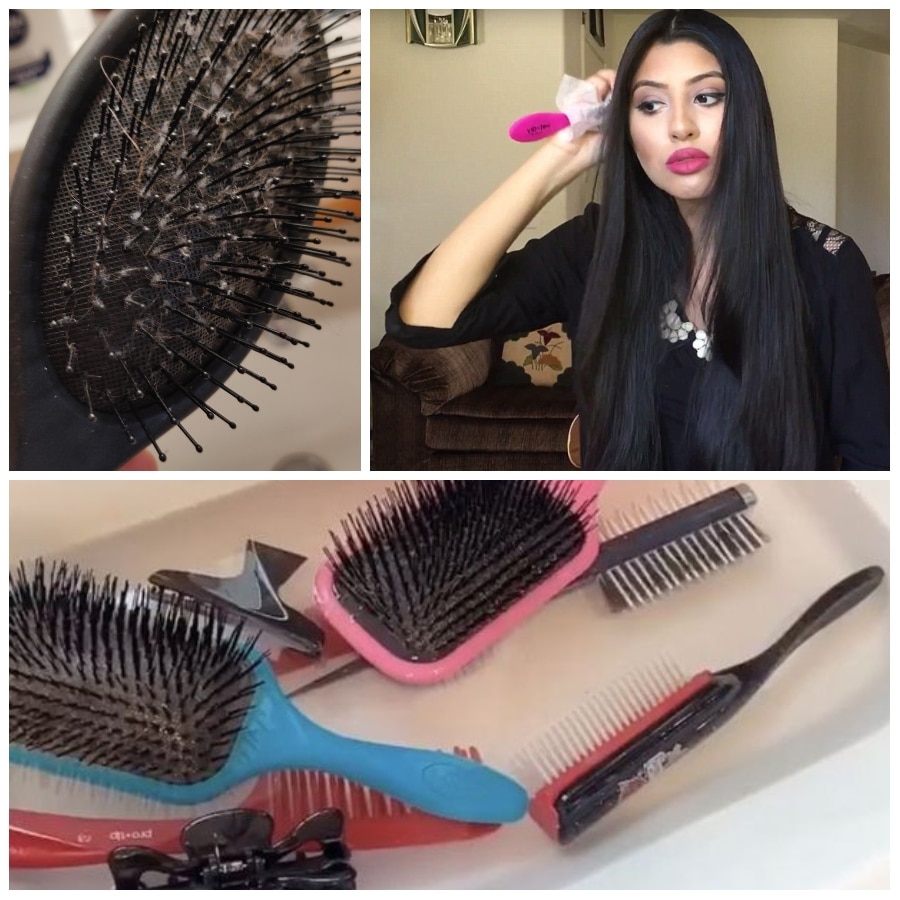
Unsanitary things such as dead skin, dust, and other pollutant particles can accumulate in the strands of the hairbrush, rendering it unhygienic. Brushes made out of natural fibers should be replaced even sooner, every 7-10 months.
Printer Ink
Depending on how much you use the printer at work or at home, you might be tempted to buy a bulk of cartridges on sale.
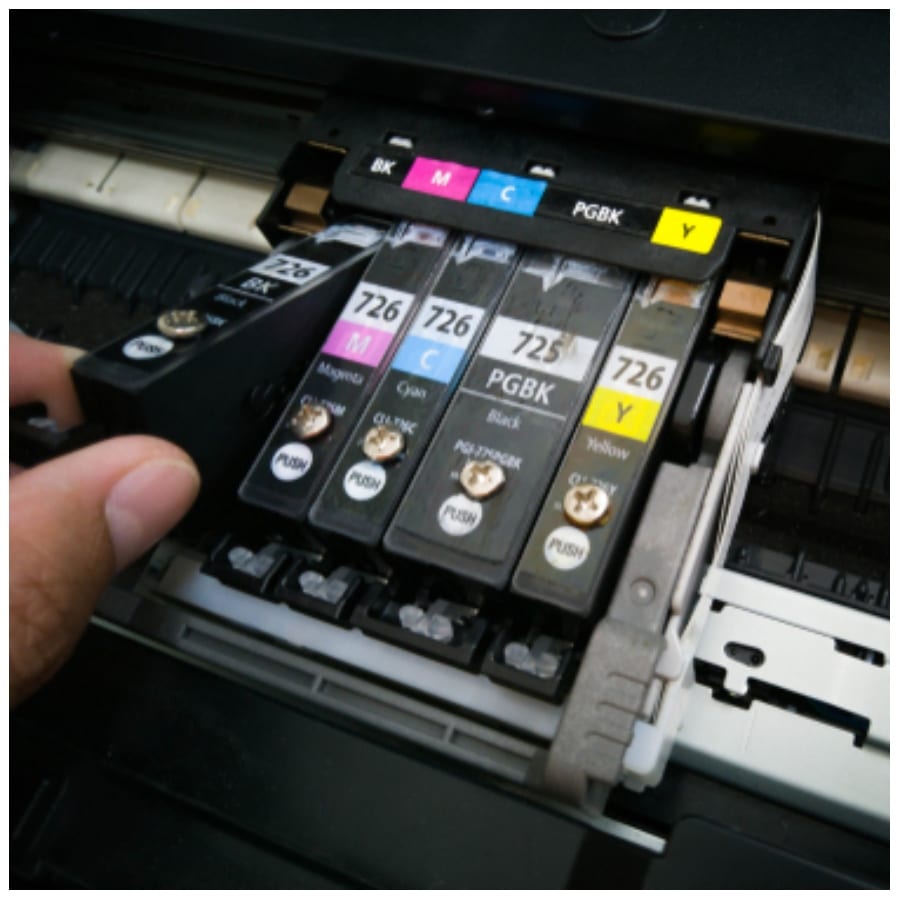
While that sounds attractive, take note that if you don’t use them fast enough, they might expire and dry up. Expired ink can ruin your devices, so think twice before buying several at a time.
Cutting Boards
You might have more than one wooden cutting board at home that you use to slice and dice different types of foods. But with time and use, cutting boards become soft, and the cutting knife can create deep scratches.
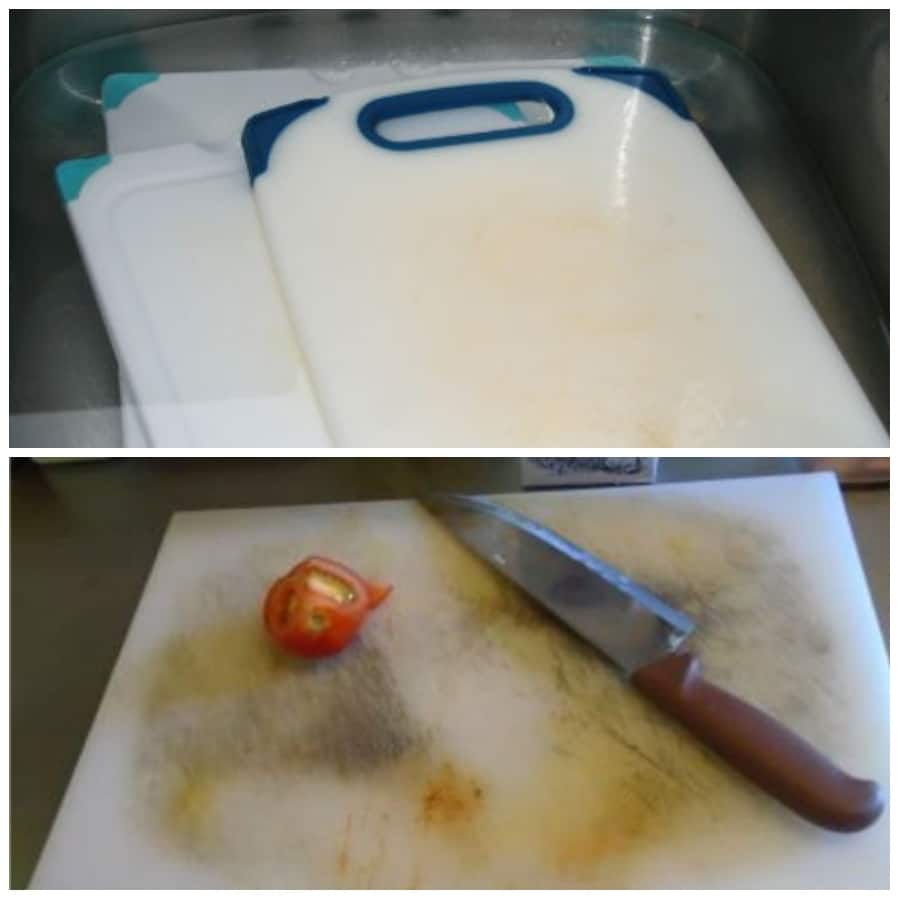
It can be difficult to remove pieces of food from the crevices with success, giving way to the growth of bacteria.
Toothpaste
Toothpaste usually has a shelf life of two years. The reason for this expiration date is fluoride. After two years, fluoride can change in flavor and color, and it may not be as effective, explains Sean Tomalty, a cosmetic dentist.
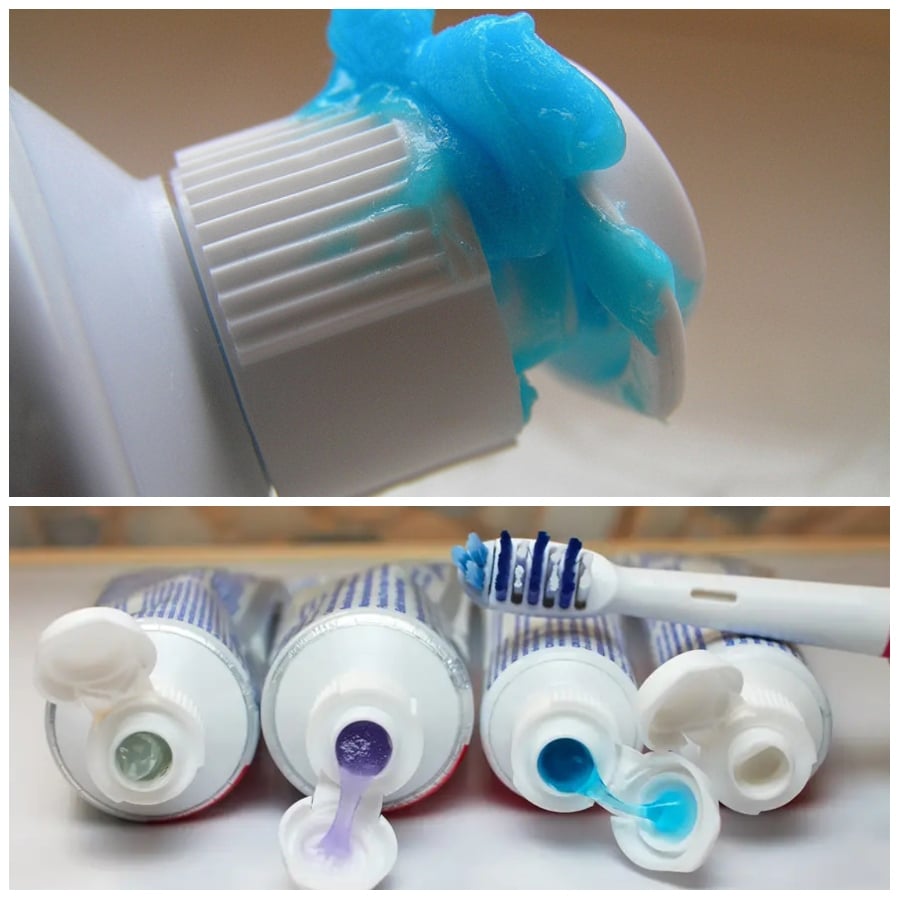
It is very important to take care of our teeth and do everything we can to avoid any conditions.
Eyedrops
Once you buy them, eyedrops are commonly one of those products that stay in our medicine cabinet for a long time. However, it is little known that they can cause severe damage after 4 weeks.
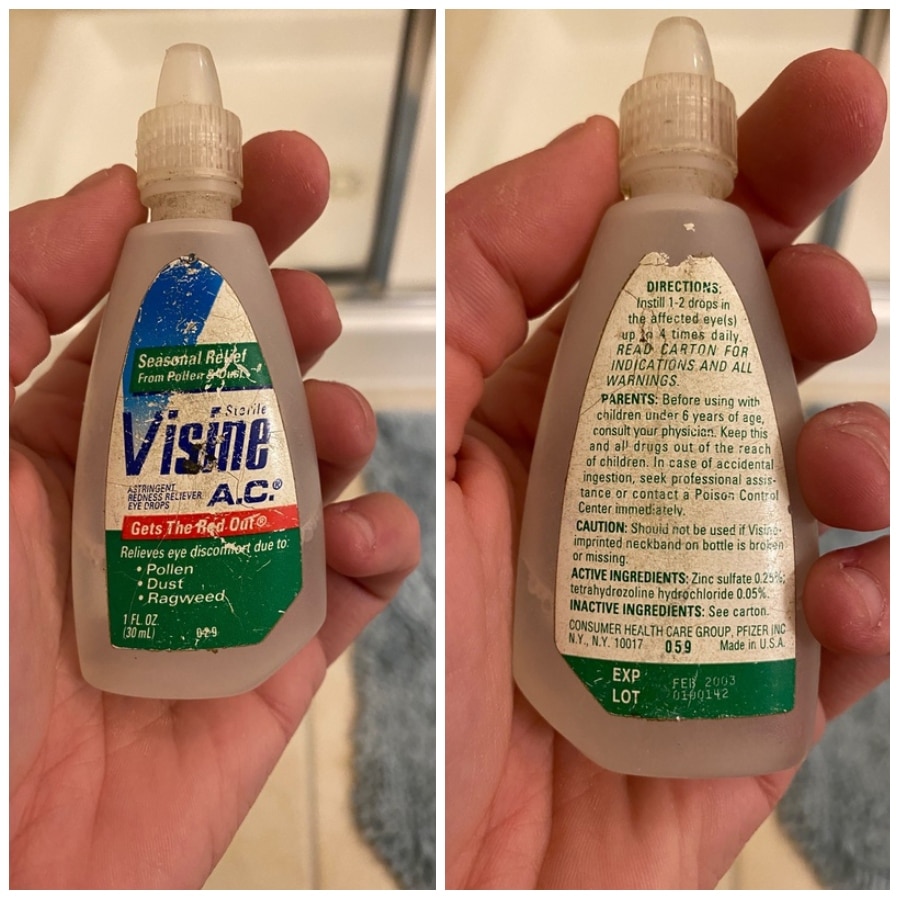
The reason for this is that after 28 days, eyedrops begin to lose their disinfectant component, and using them increases the chance of contracting bacterial infections.
Boxed Wine
We all heard the phrase, “The older the wine, the better they get.” But have you ever wondered how old is too old? When it comes to packaged wines, the recommended consumption time after
purchase is between 6 to 8 months.
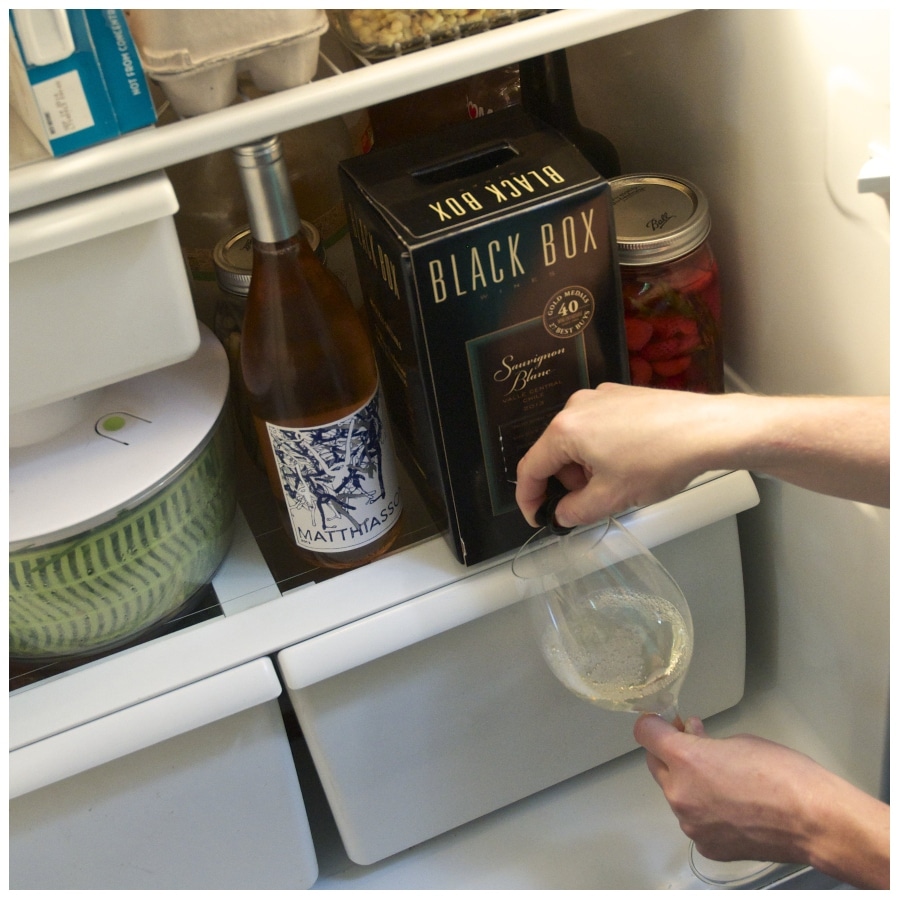
This occurs because some boxes may contain bisphenol (BPA), a component that can cause heart problems or even fertility difficulties.
Mouthwash
Mouthwash is a great ally when it comes to taking care of our oral health. However, it is essential to know that the alcohol component in every mouthwash begins to dissolve after 2 or 3
years.
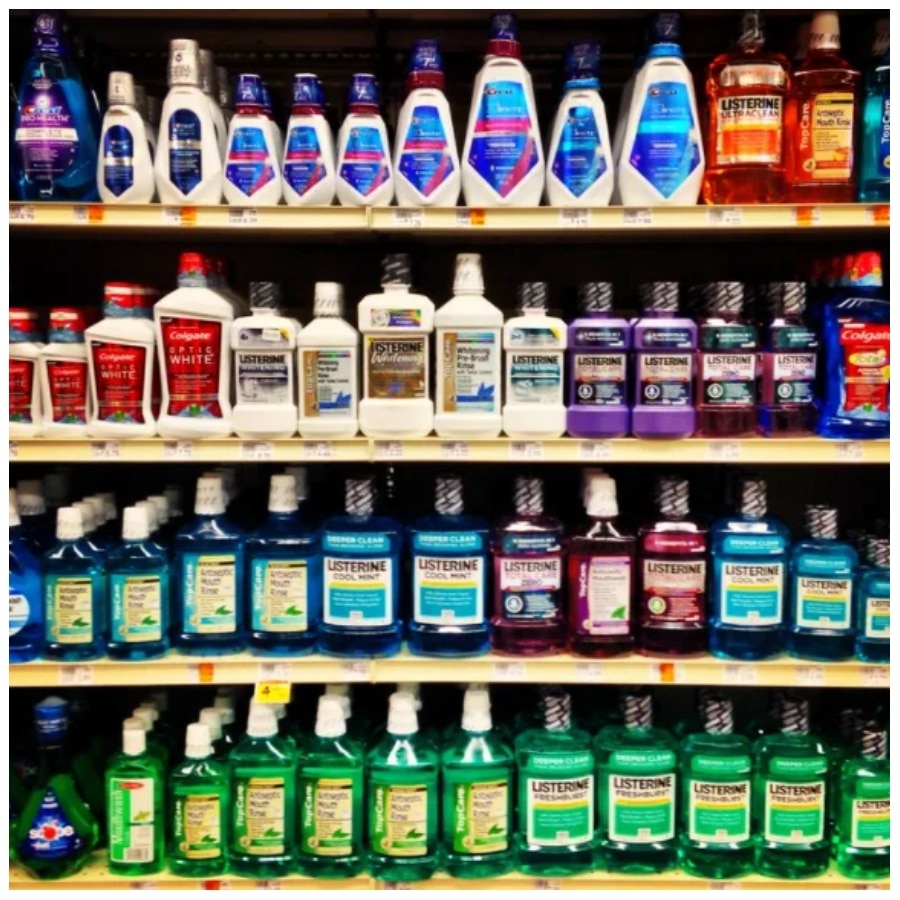
After this time, it will lose its effectiveness, and it will be necessary to buy a new one to do the trick for us.
Sunscreen
When it comes to sunscreen, it is essential to know that most of them have a shelf life of around 3 years.
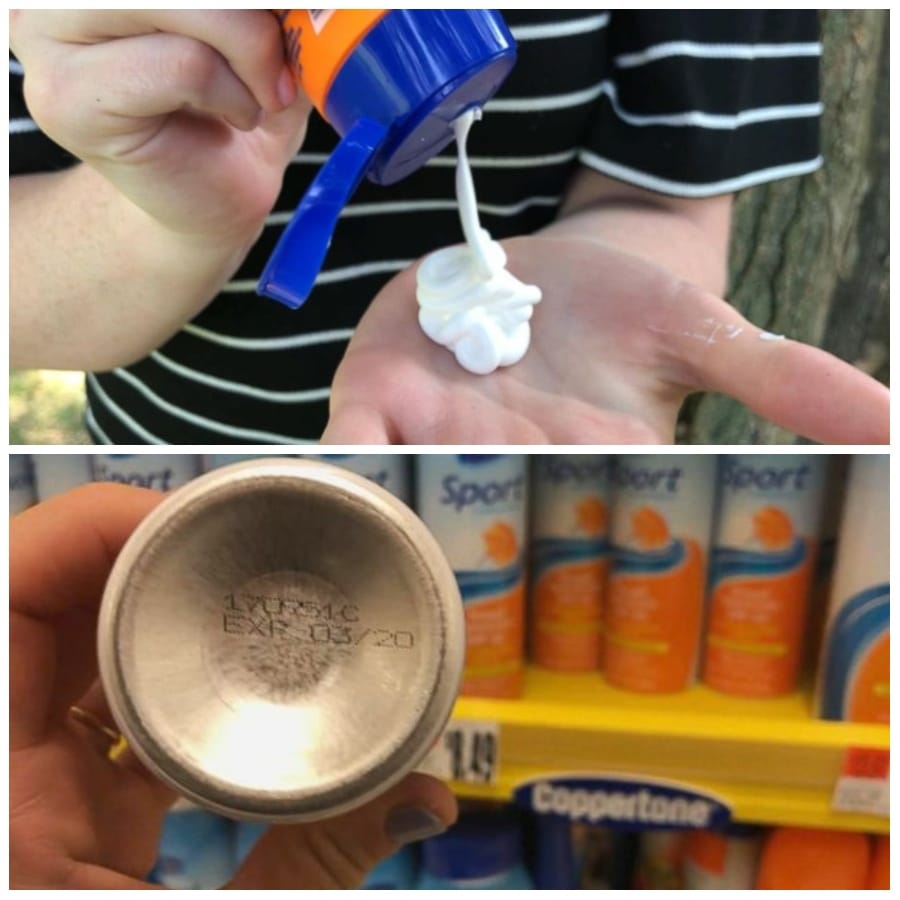
The Food and Drug Administration recommends that if you can’t find the expiration date on the bottle, you write down the date you purchased the product. This will ensure that your skin is
being protected from the sun effectively.
Medicine
Medicine is more than just a remedy; it’s a lifeline for many. However, its expiry date is not just a suggestion but a strict guideline. Post-expiration, medicines like insulin and liquid antibiotics can turn from lifesavers to toxic threats.
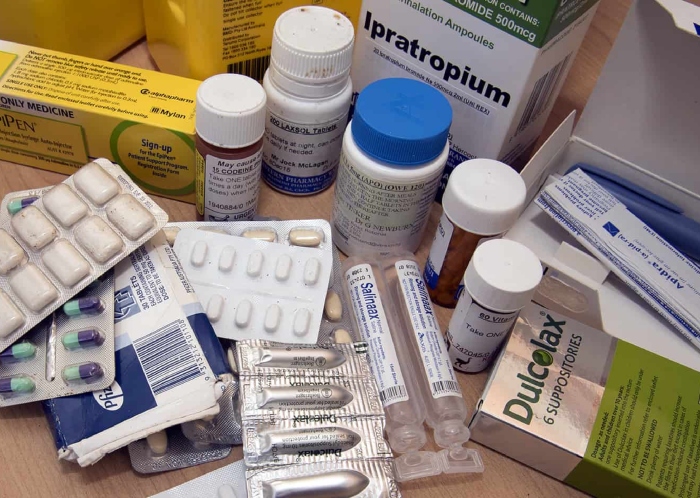
The potency dwindles, and they might cause more harm than relief. Always double-check the expiration dates, and if in doubt, don’t hesitate to consult your doctor. Your health deserves only the best!
Cables and Extension Cords
Those innocuous-looking cables and extension cords snaking across your floor might be sly serpents waiting to strike! Continual wear and tear, especially if they’re trapped in doorways or underfoot, may lead to fraying and tearing.
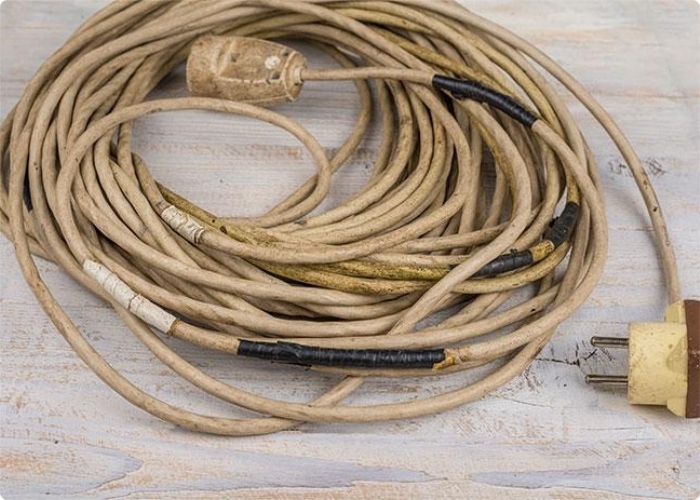
This could escalate into a potential fire hazard, turning a convenience into a catastrophe. Don’t take the risk; replace them timely and ensure your safety.
Running Shoes
Your trusty running shoes might be jogging toward retirement! As they age, their cushioning begins to falter, putting undue stress on your muscles, bones, and joints. Ignoring this can lead to aches, pains, and even injuries.

Remember, a good pair of running shoes isn’t just about style; it’s a part of your health regimen. When they lose their bounce, it’s time for a new pace partner.
Vitamins
Vitamins are like secret agents for your body, operating silently but effectively. However, they, too, can lose their vigor past the expiration dates.

While not harmful, expired vitamins may lose their promised potency, rendering them less effective. Want to stay on top of your health game? Store them wisely, follow the “use by” dates, and let your body enjoy its full benefit.
Sunglasses
Your favorite sunglasses might have lost their cool! Over years of shielding your eyes from harmful UV rays, they may have become compromised, turning from protectors to mere accessories.
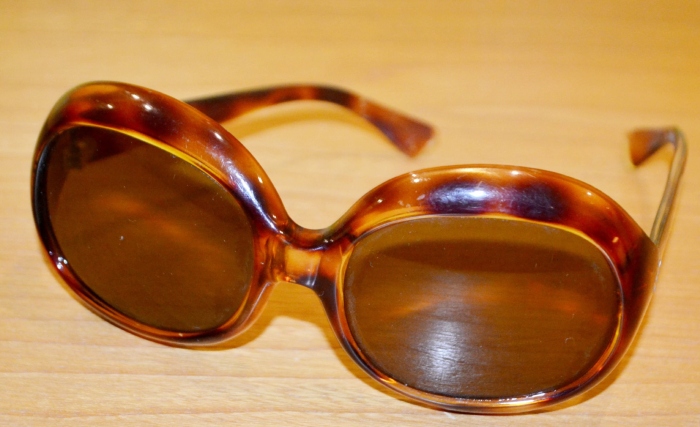
Don’t gamble with your eyesight; when it comes to sunglasses, fashion and function must go hand in hand. Maybe it’s time for a chic new pair that promises both style and safety.
Wooden Kitchen Utensils
Wooden kitchen utensils charm with their rustic appeal, but they age too! Cracks, splits, or dryness can make them more than just unsightly; they become unhygienic.

Cherish your wooden spoons and spatulas by replacing them when they show these signs. A little attention to these culinary companions can ensure that your cooking remains a delightful experience.
Smoke Detectors
That little device on your ceiling is a silent guardian, but did you know smoke detectors have a lifespan, too? After around 10 years, they begin to lose sensitivity, compromising your safety.
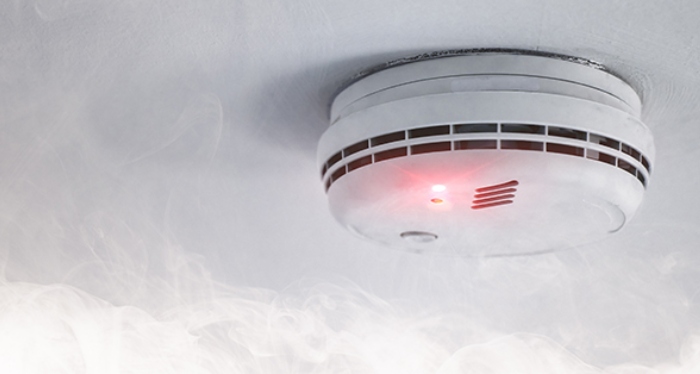
Adhere to the National Fire Protection Association’s guidelines and make a timely replacement. It’s more than an appliance; it’s your family’s first line of defense against unforeseen dangers.
Pepper Spray
When it comes to personal safety, pepper spray can be an essential tool. But just like other products, it has an expiration date. Beyond this date, the spray might not function as intended, potentially failing you in a critical moment.
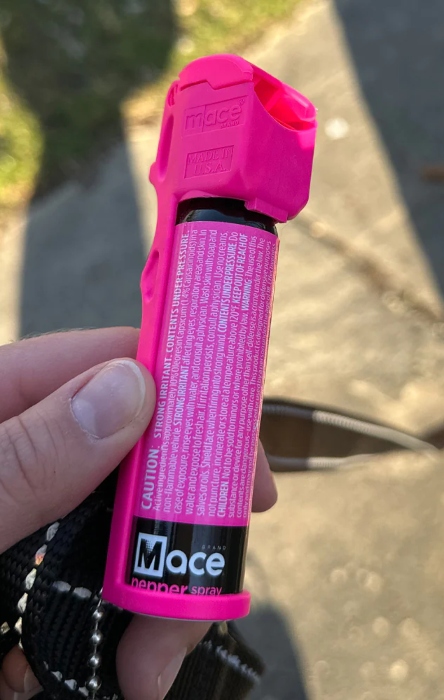
Regular checks and timely replacement ensure that your self-defense tool remains reliable. When it comes to personal safety, even a small oversight can have significant consequences, so be vigilant.
Fire Extinguishers
A dormant fire extinguisher could awaken to a nightmare! With time, seals can weaken, rendering it ineffective.
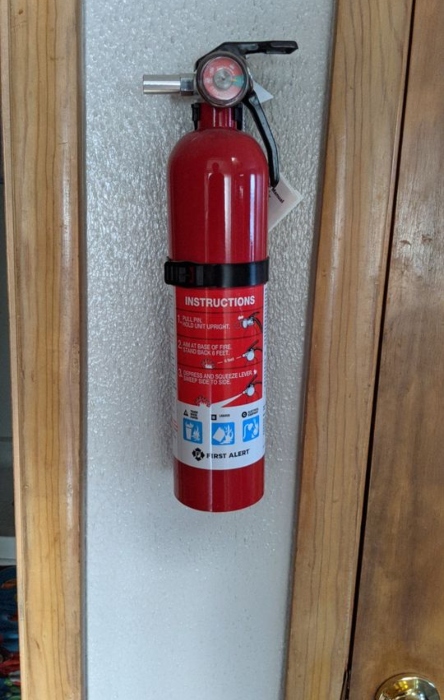
Whether for home or commercial use, staying aware of its expiration date is crucial. Investing in a new one or getting it refilled and resealed might be the barrier between a minor accident and a major disaster.
Car Seats
Children’s safety is paramount, especially in a moving vehicle. An expired car seat can be an invisible threat.
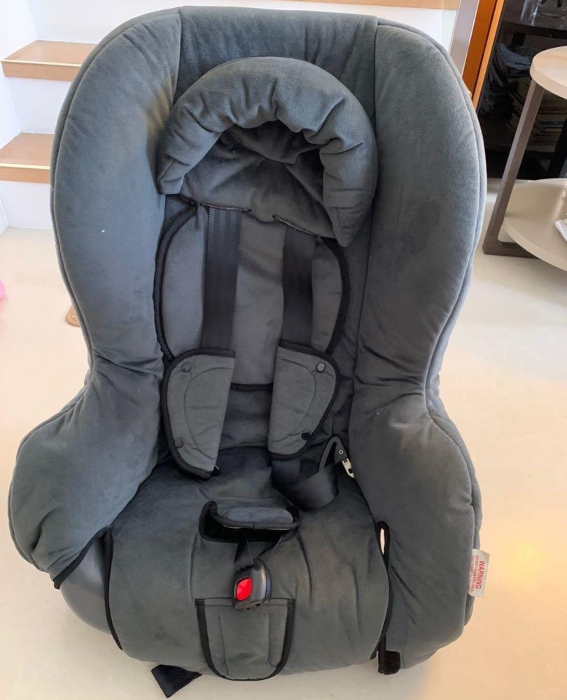
Degraded plastic or outdated safety features might not hold up when needed most. Embrace technological advancements and ensure your child’s safety with a modern car seat. After all, their well-being is a non-negotiable priority.
Motor Oil
A smooth ride needs smooth oil, but storing motor oil for years might lead to a bumpy experience. Additives may break down, and unsealed bottles might absorb moisture. Even synthetic oils can lose their sheen.
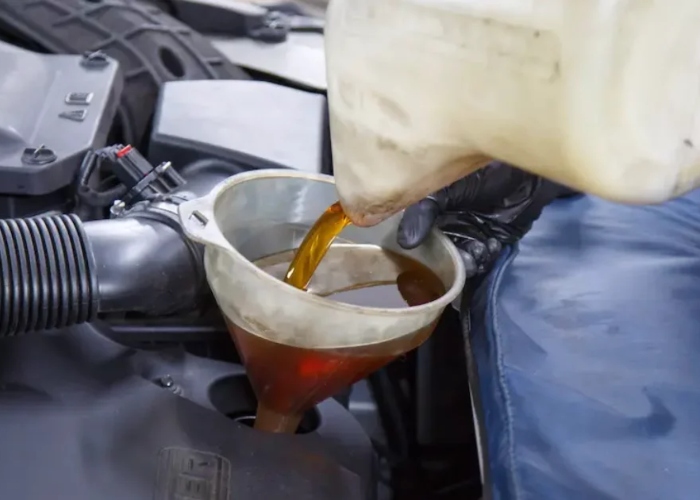
Be sure to store motor oil properly and pour it out to check for any signs of degradation. The road of life is full of twists and turns; don’t let old oil add to them!
Expired Baking Soda
Baking soda might sit in your pantry for years, but once it expires, its effectiveness as a leavening agent or deodorizer diminishes. That means your baked goods may fall flat, and odors might linger instead of disappearing.

Beyond performance, expired baking soda can absorb moisture and develop clumps, making it less helpful in cleaning or absorbing smells. To avoid mishaps, check the expiration date and replace it every six months to a year for best results. Fresh baking soda is always the safer bet.
Old Sunscreen Bottles
Sunscreen may seem like it lasts forever, but it loses its protective power after its expiration date. Using old sunscreen can leave your skin vulnerable to harmful UV rays, increasing your risk of sunburn or long-term skin damage.

Expired sunscreen can also separate or develop a strange texture, making it less pleasant to use. To stay protected, replace sunscreen annually or whenever it’s past its expiration date, and store it in a cool, dry place to prolong its shelf life.
Makeup Products
Makeup has a shelf life, and keeping expired products can lead to skin irritation or bacterial infections. Mascara, for instance, can become a breeding ground for bacteria after just three months of use, while foundation may separate and clog pores.

Medications
Using expired medications might seem harmless, but their potency can significantly decrease, making them less effective. In some cases, expired drugs may even develop harmful byproducts that can pose health risks.

Whether it’s over-the-counter pain relievers or prescription pills, always check the expiration date. Dispose of expired medications properly—never flush them down the toilet—and replace them promptly to ensure safe and effective treatment when needed.
Fire Extinguishers
Fire extinguishers don’t last forever, and an expired one might not work when you need it most. The contents can lose pressure or become ineffective over time, putting you at risk during an emergency.

Regularly check the expiration date and pressure gauge on your extinguisher. Replace or service expired ones to ensure you’re prepared to handle small fires safely and effectively.
Air Fresheners
That air freshener you forgot about might not be doing its job anymore—or worse, it could be releasing harmful chemicals. Over time, expired air fresheners can degrade, emitting off-putting odors or potentially irritating fumes.

Replace air fresheners regularly and consider natural alternatives to maintain a pleasant and safe home environment. Fresh scents shouldn’t come at the cost of your air quality or health.
Water Filters
Water filters that haven’t been replaced on time can become less effective at removing contaminants and might even allow bacteria to build up. Instead of delivering clean water, an expired filter could leave you drinking impurities.

Check your filter’s lifespan and replace it as recommended by the manufacturer. Keeping your water fresh and safe is as simple as staying on top of those replacement dates.